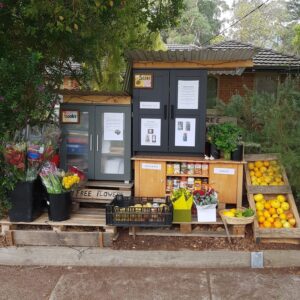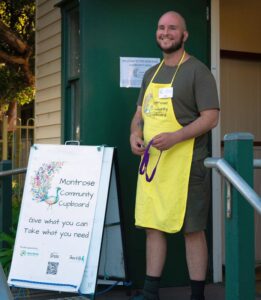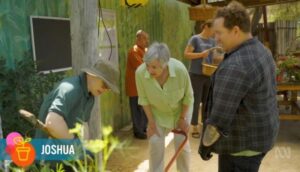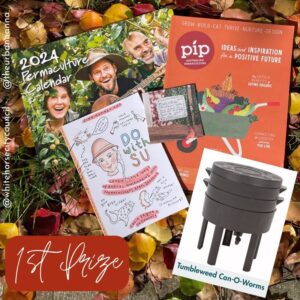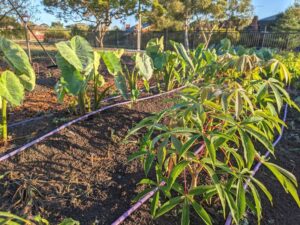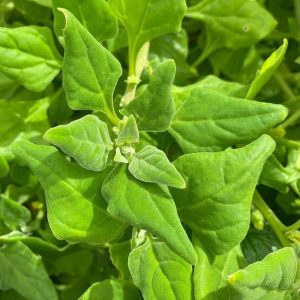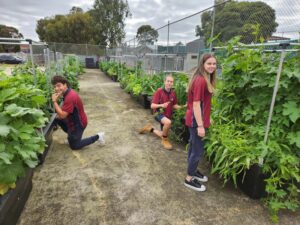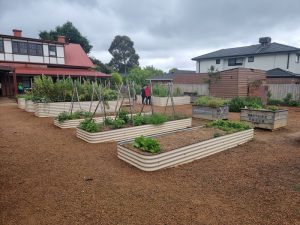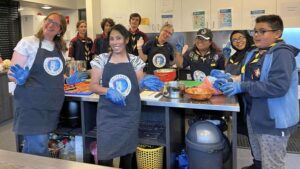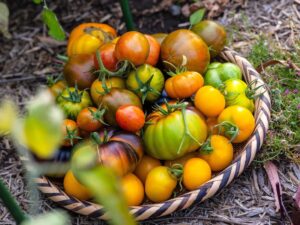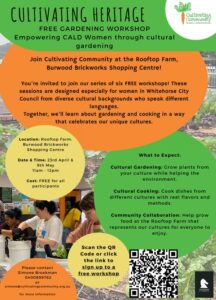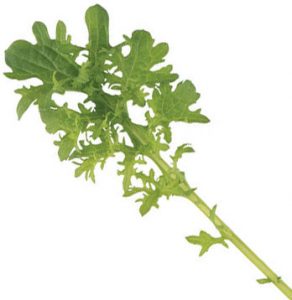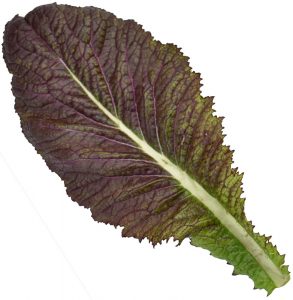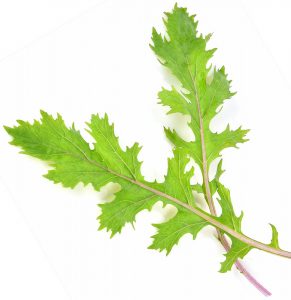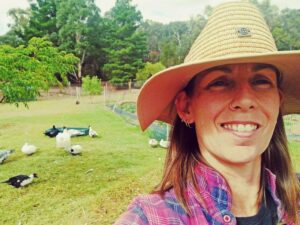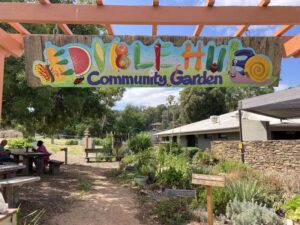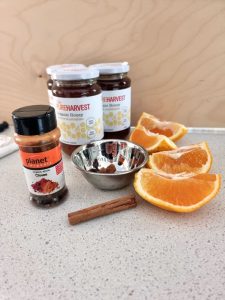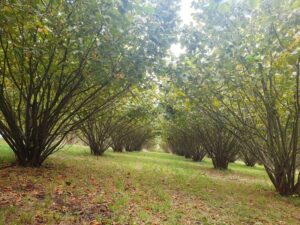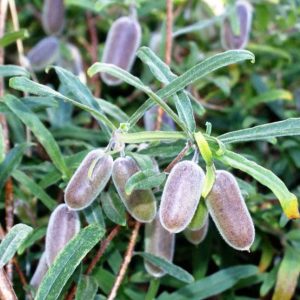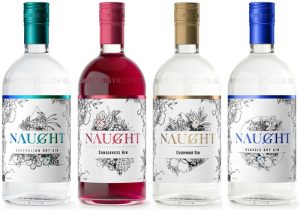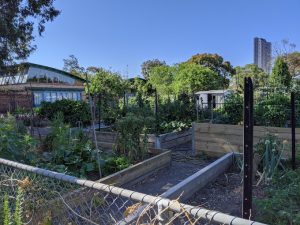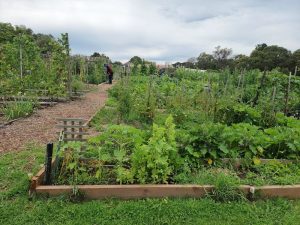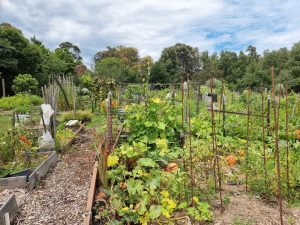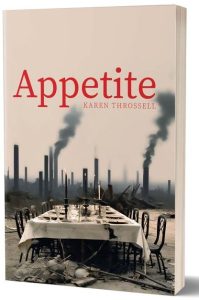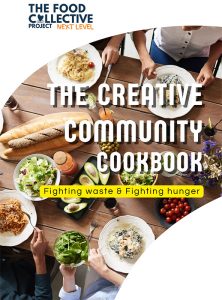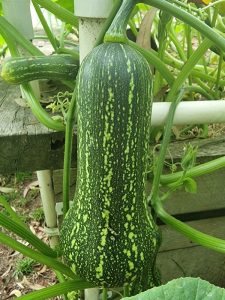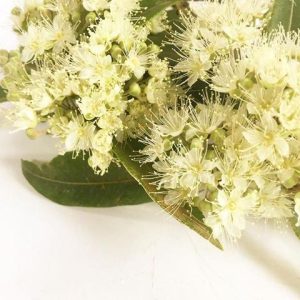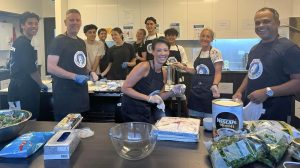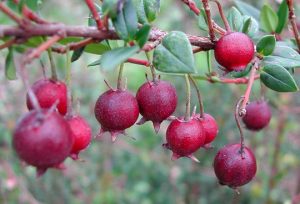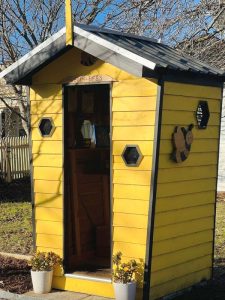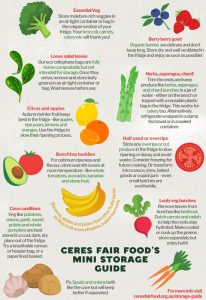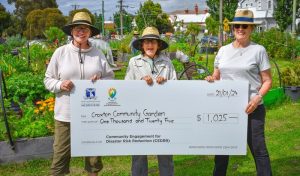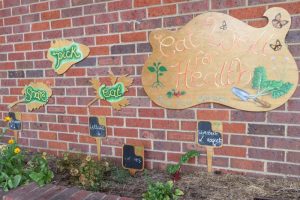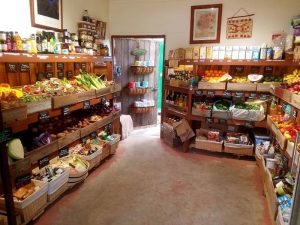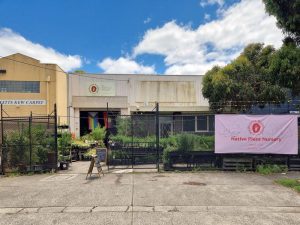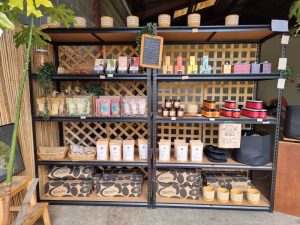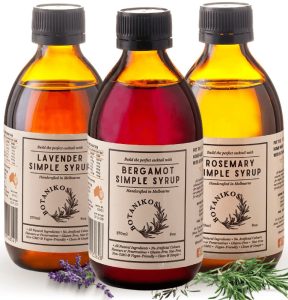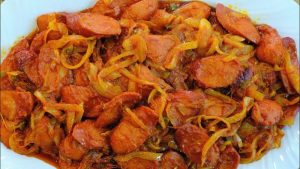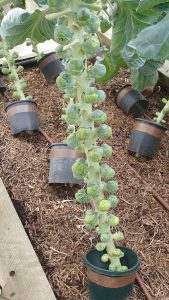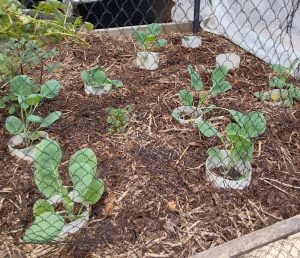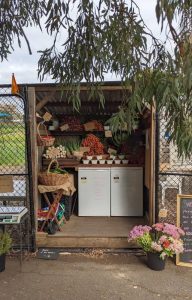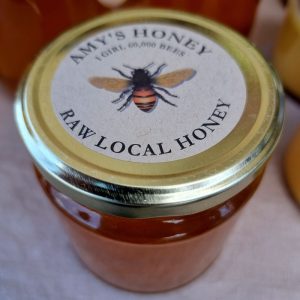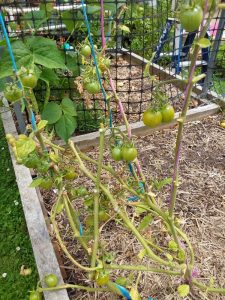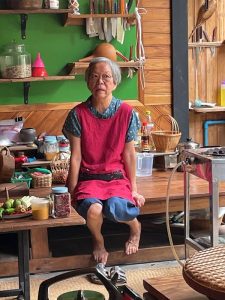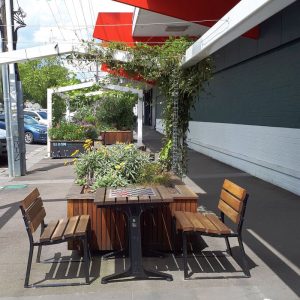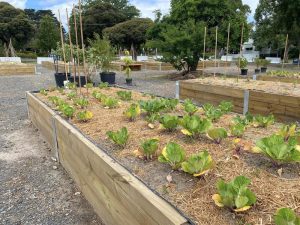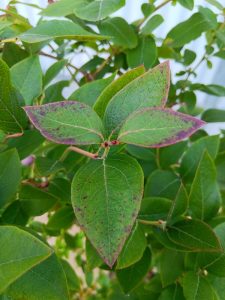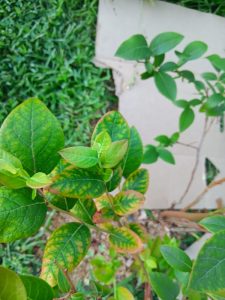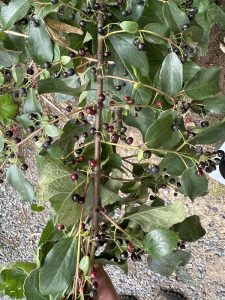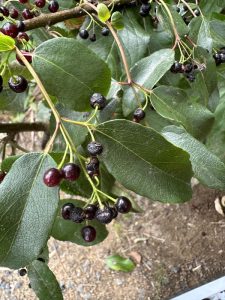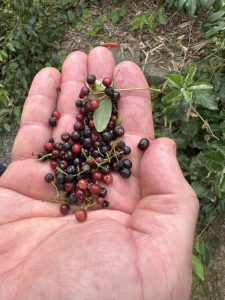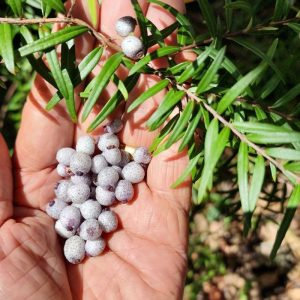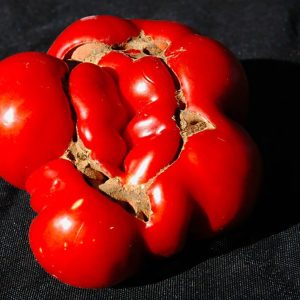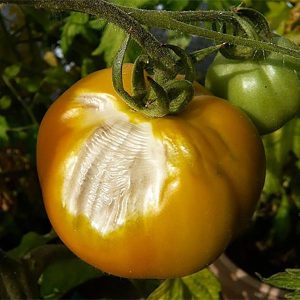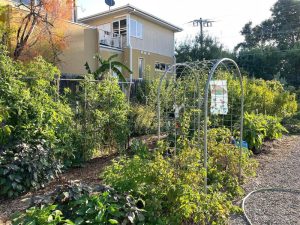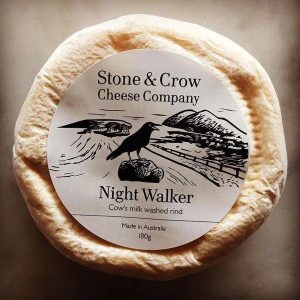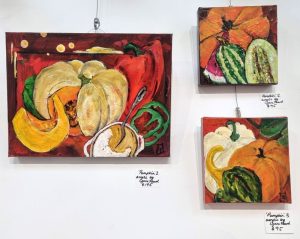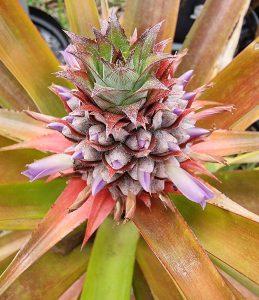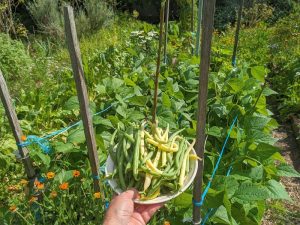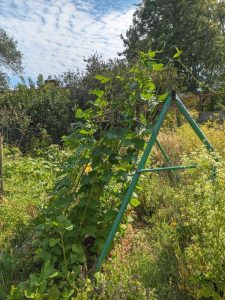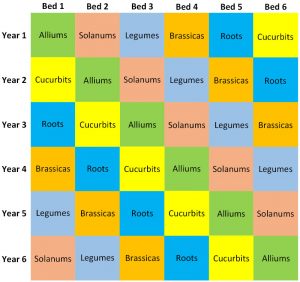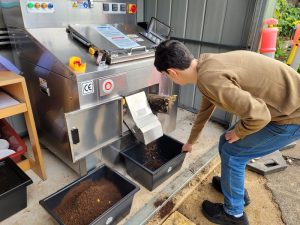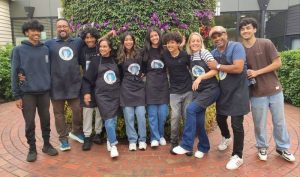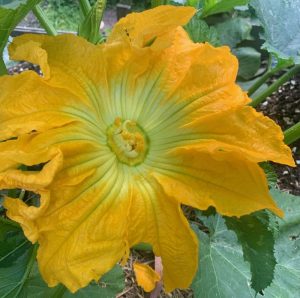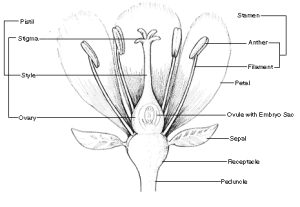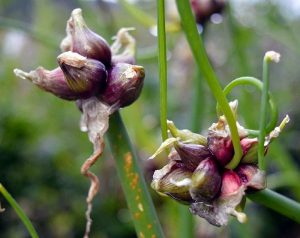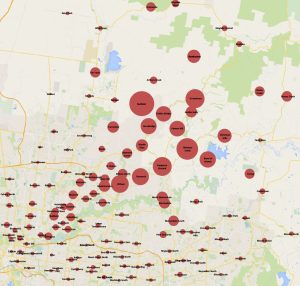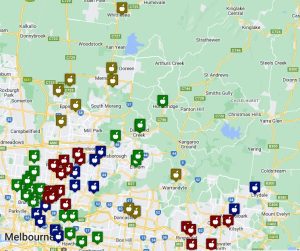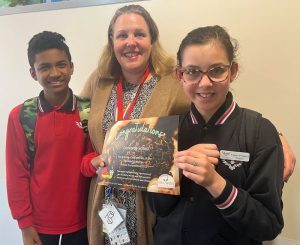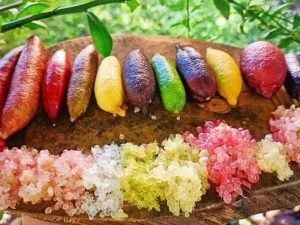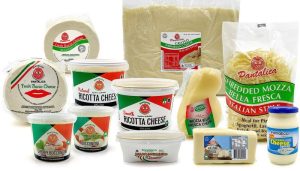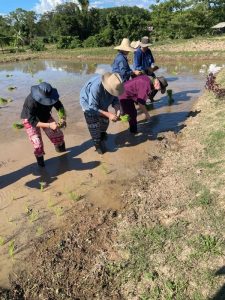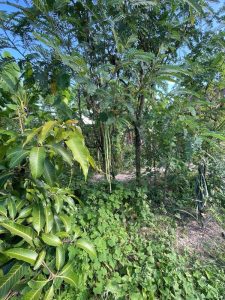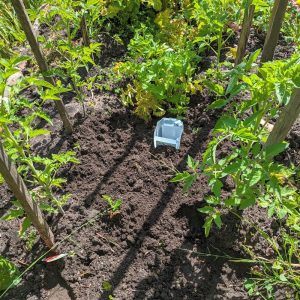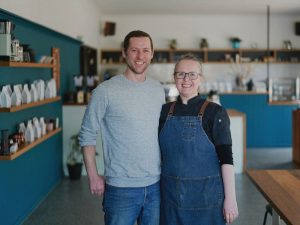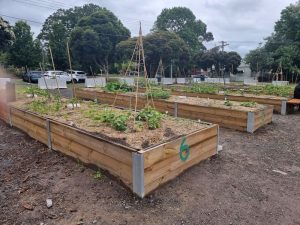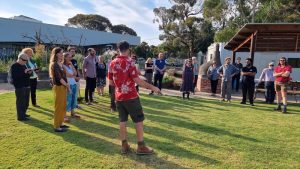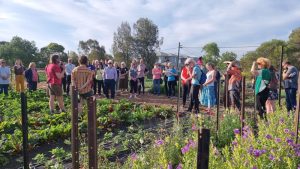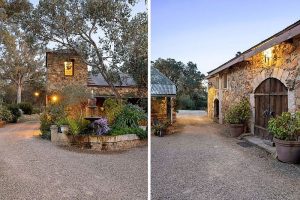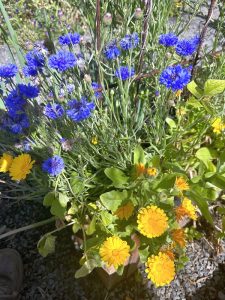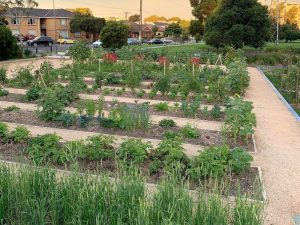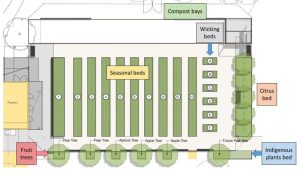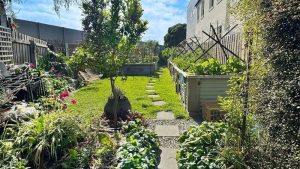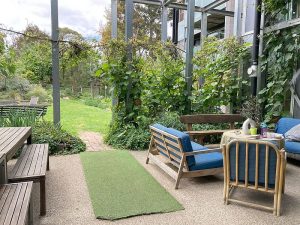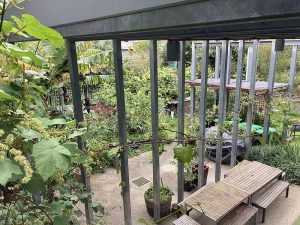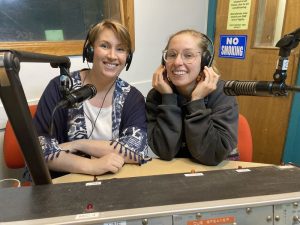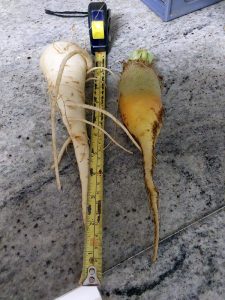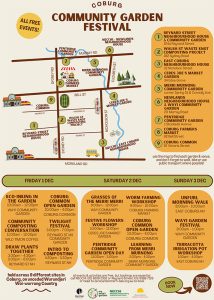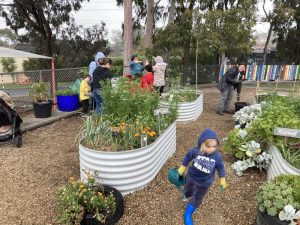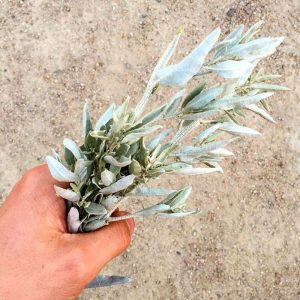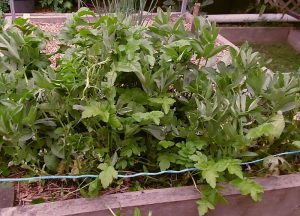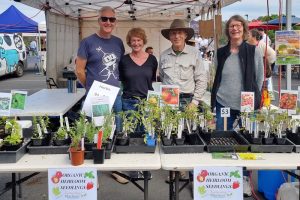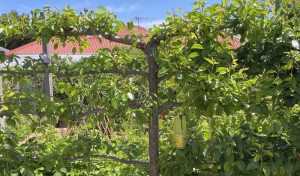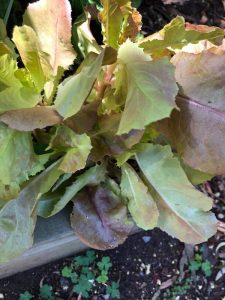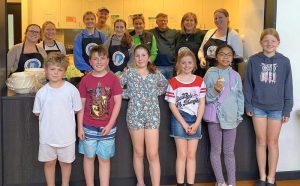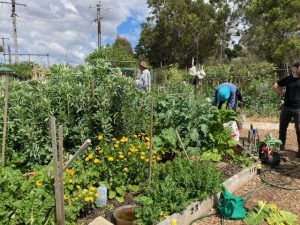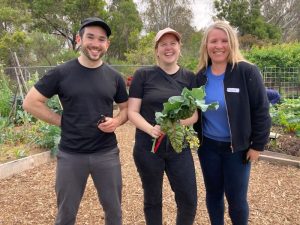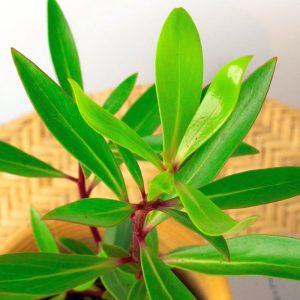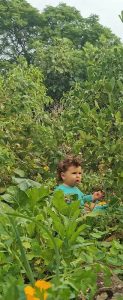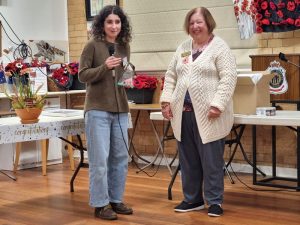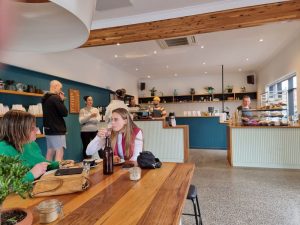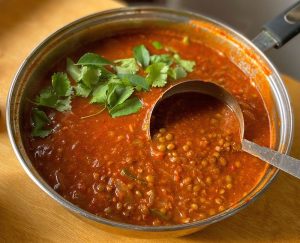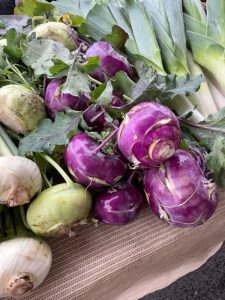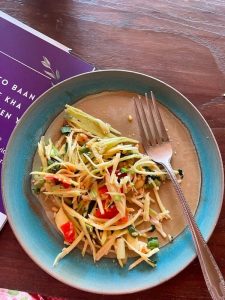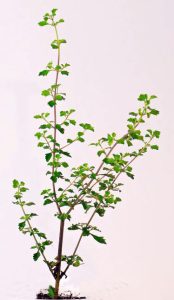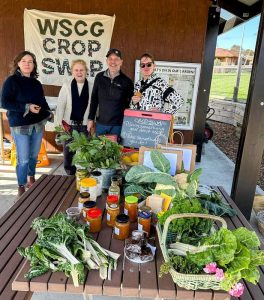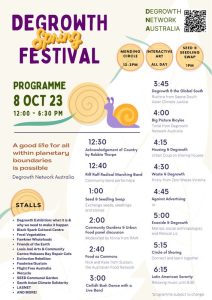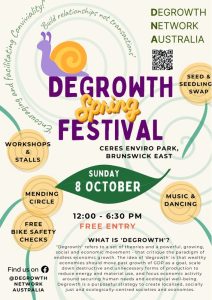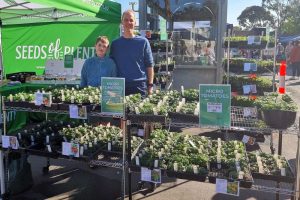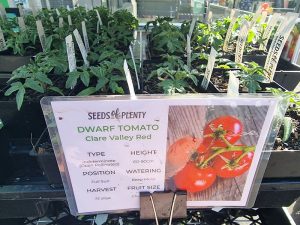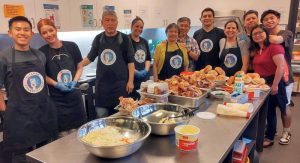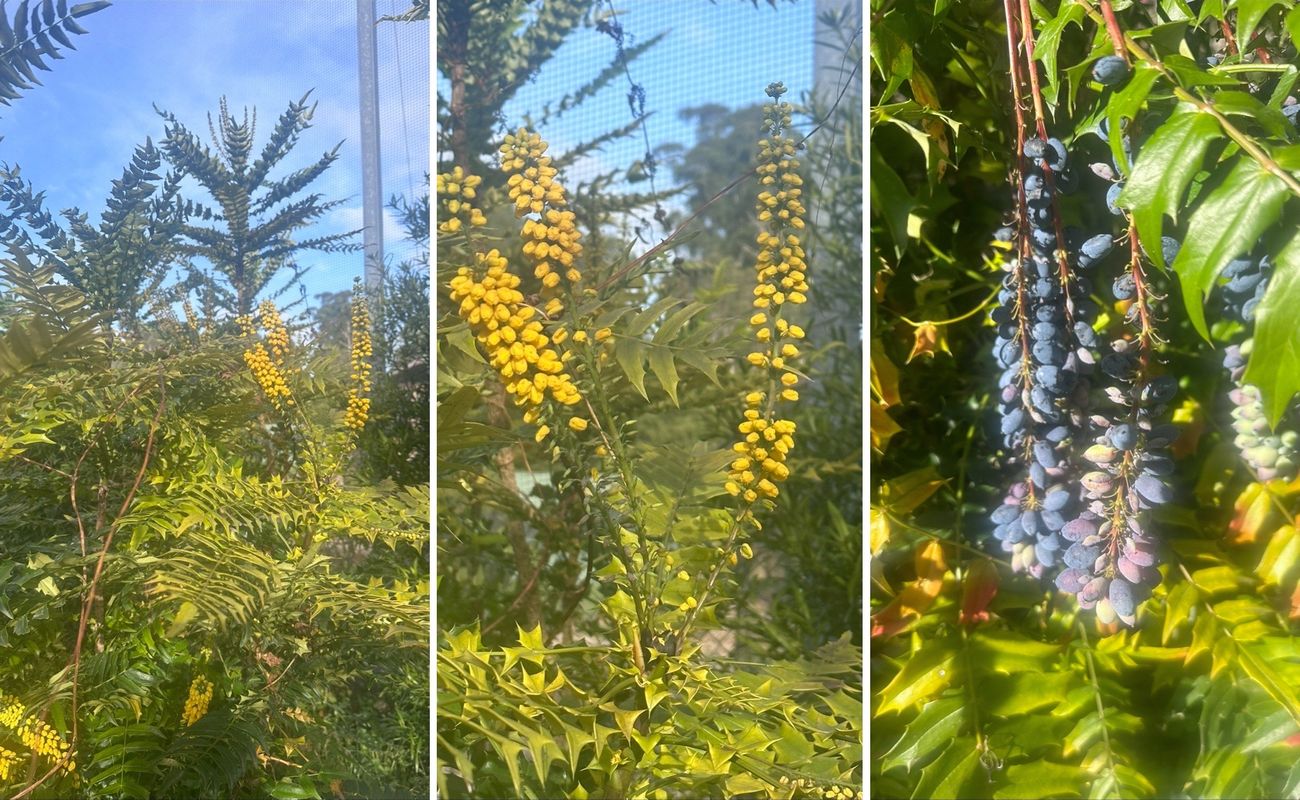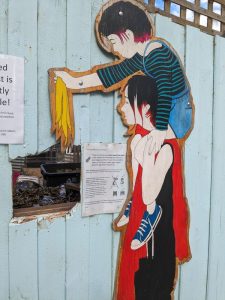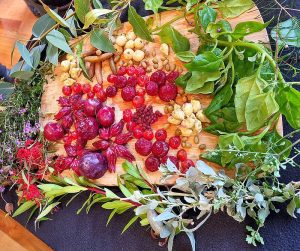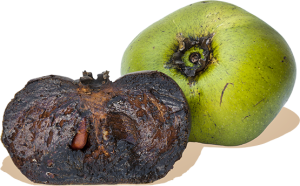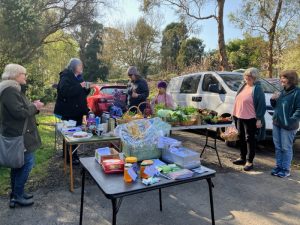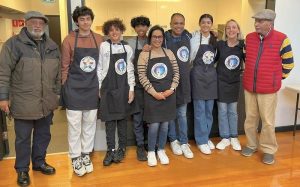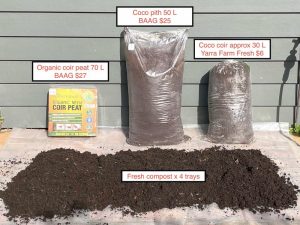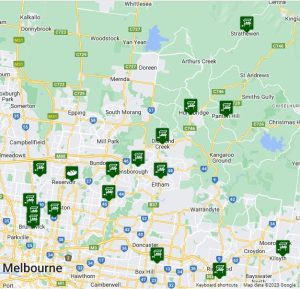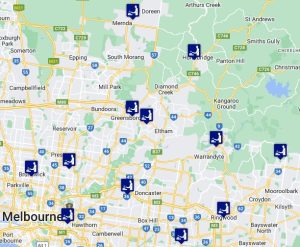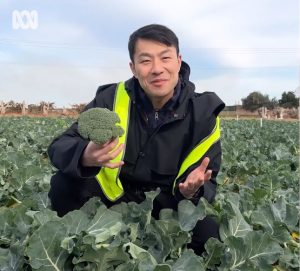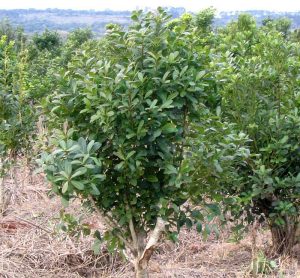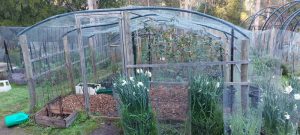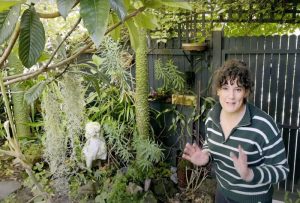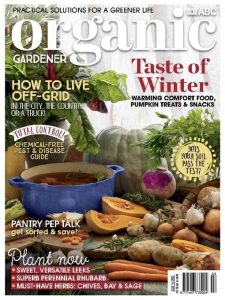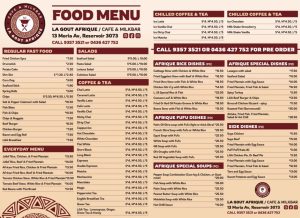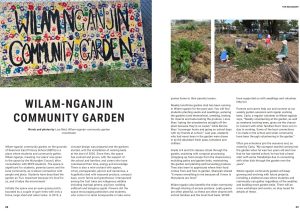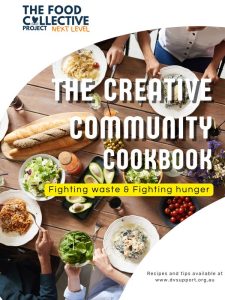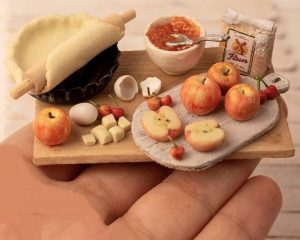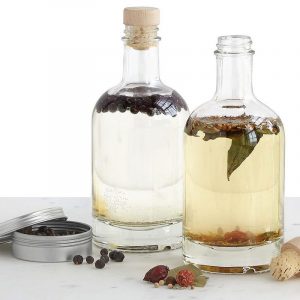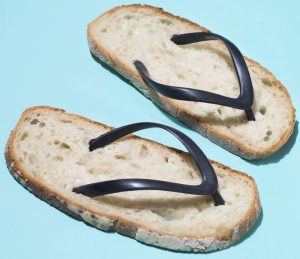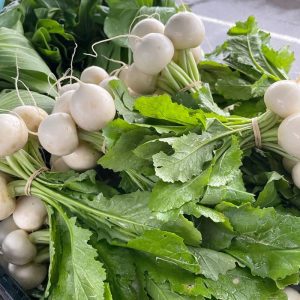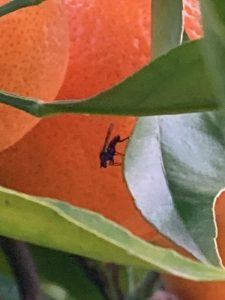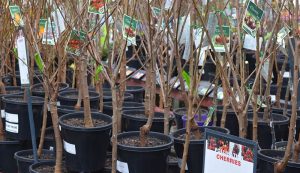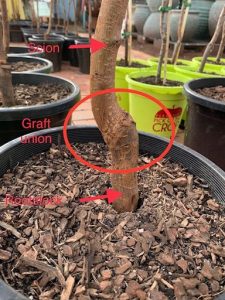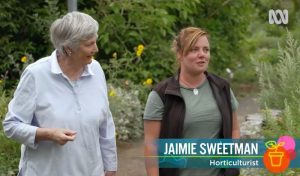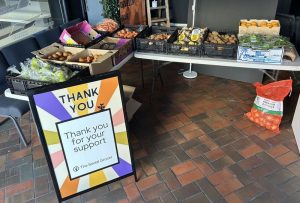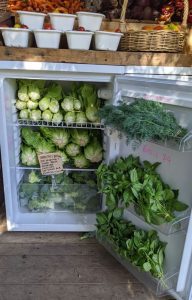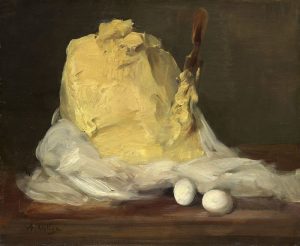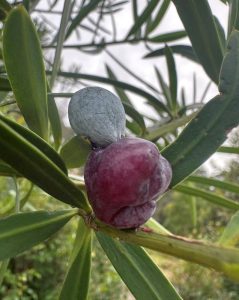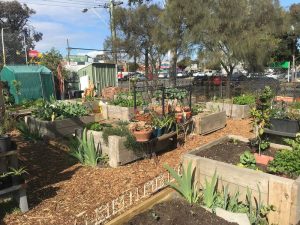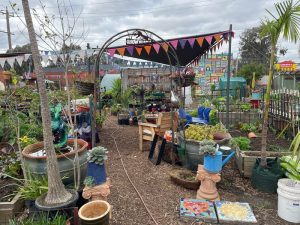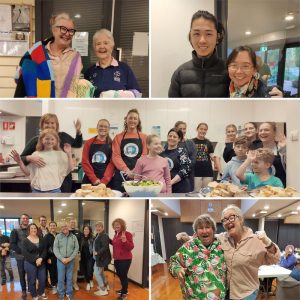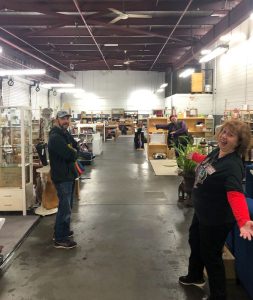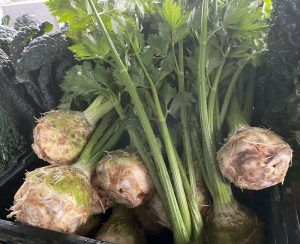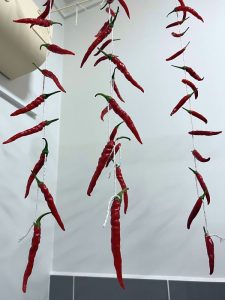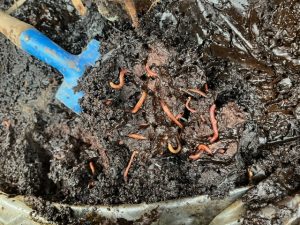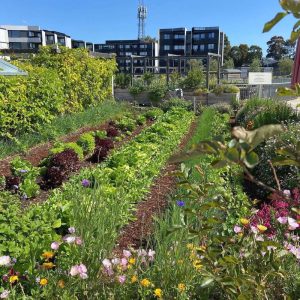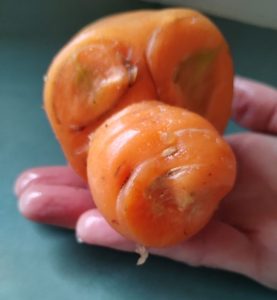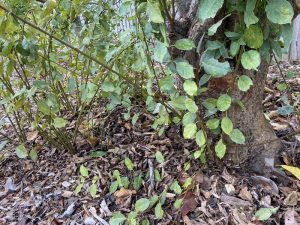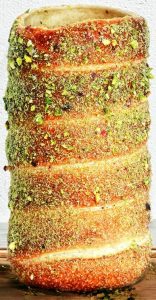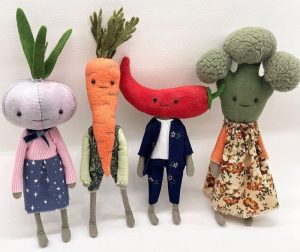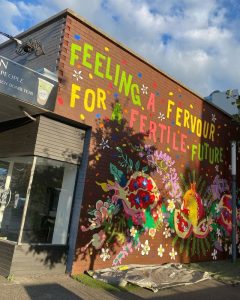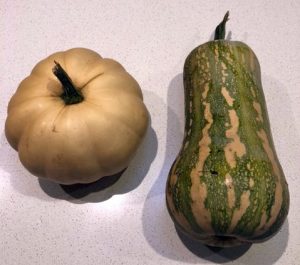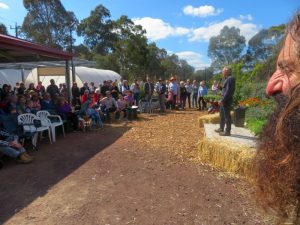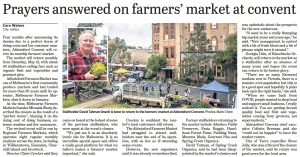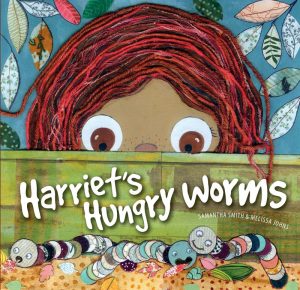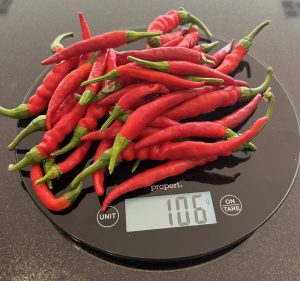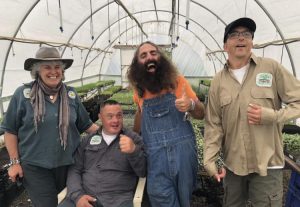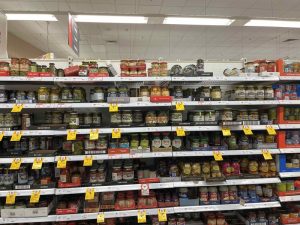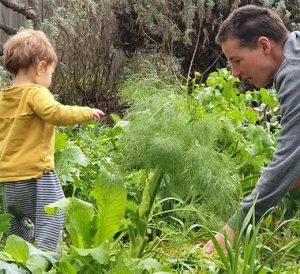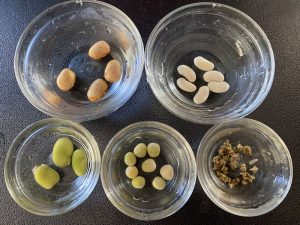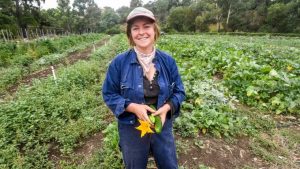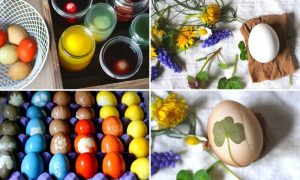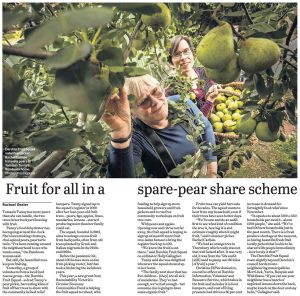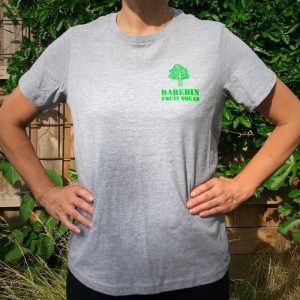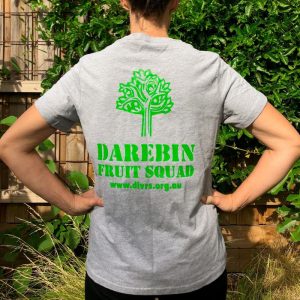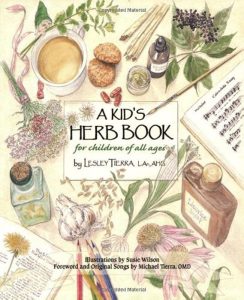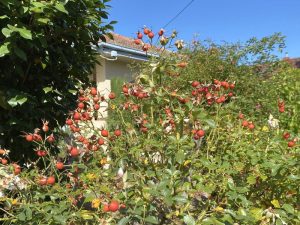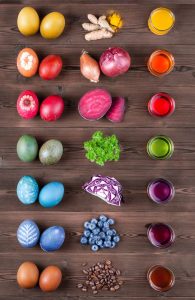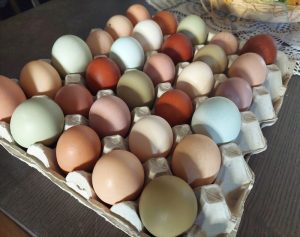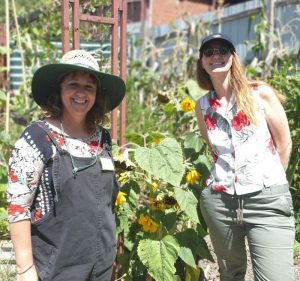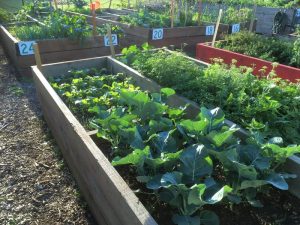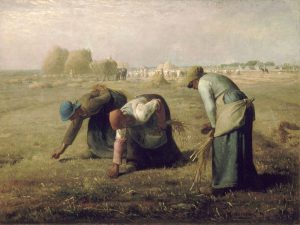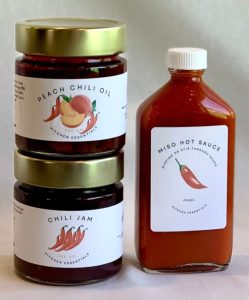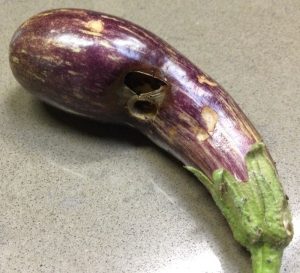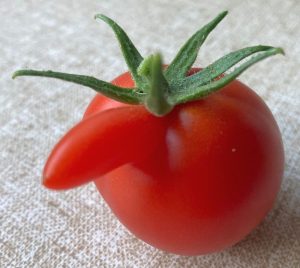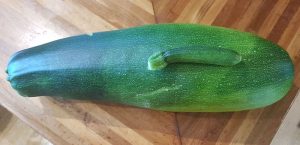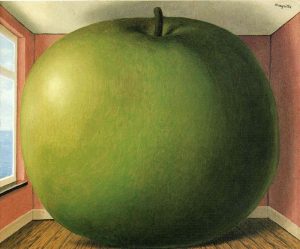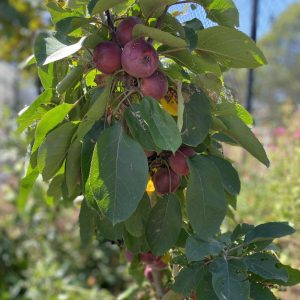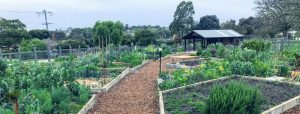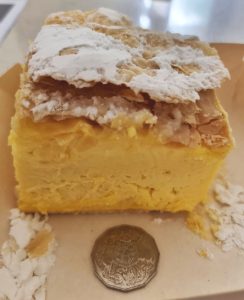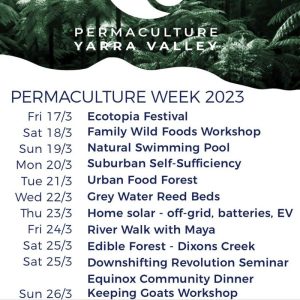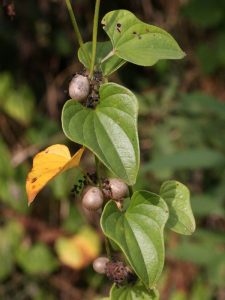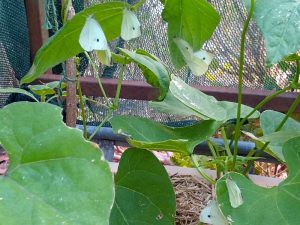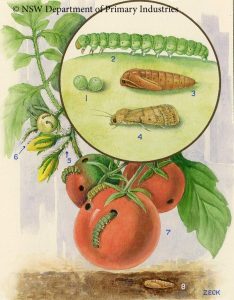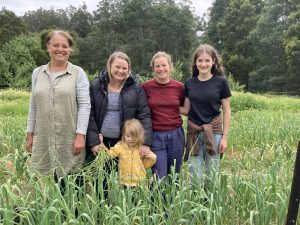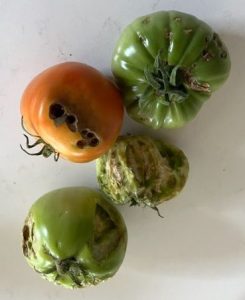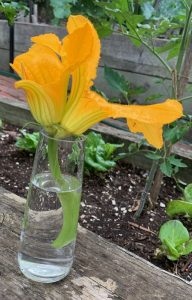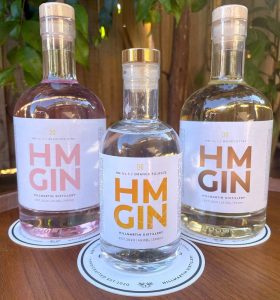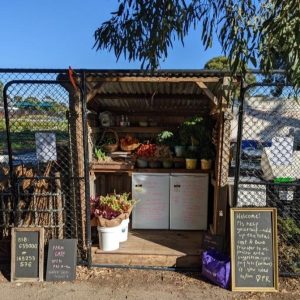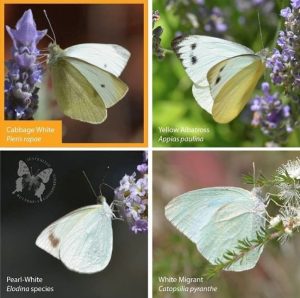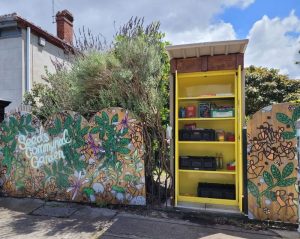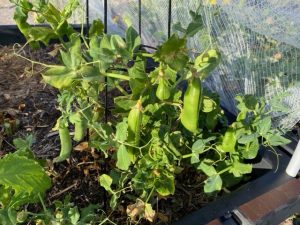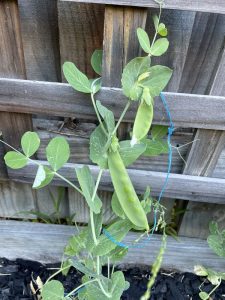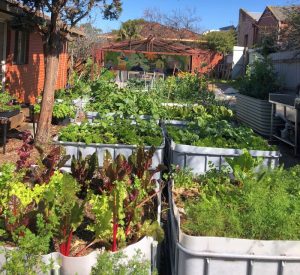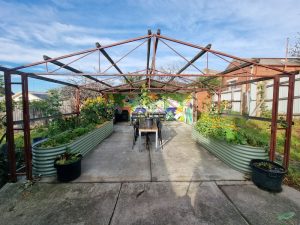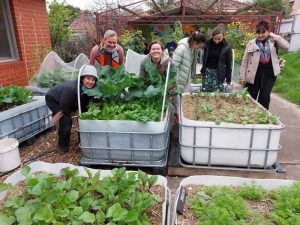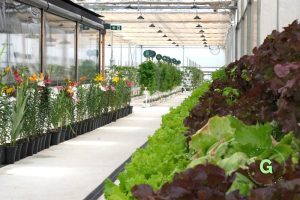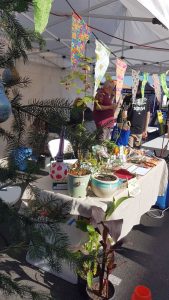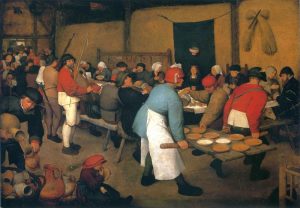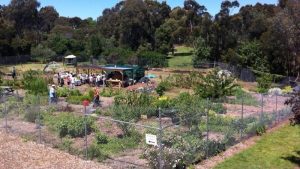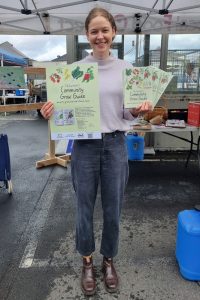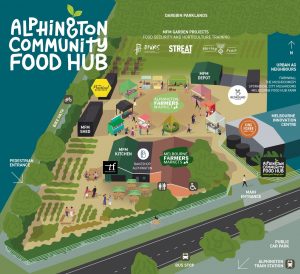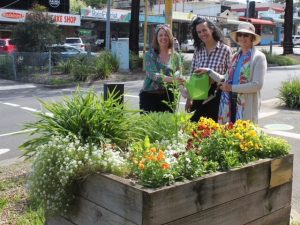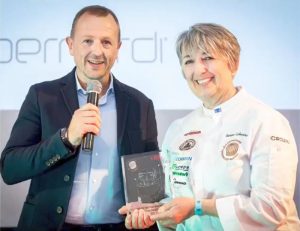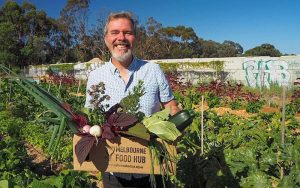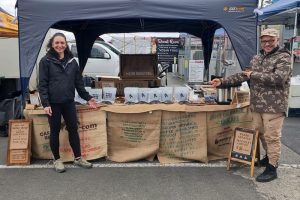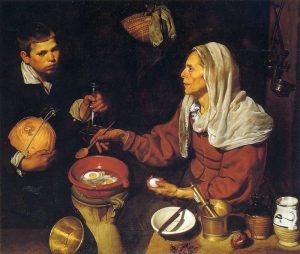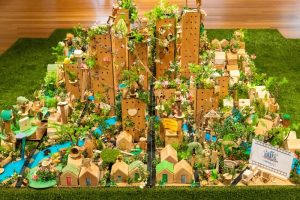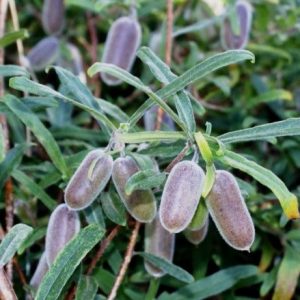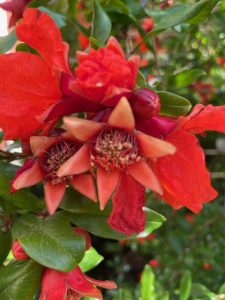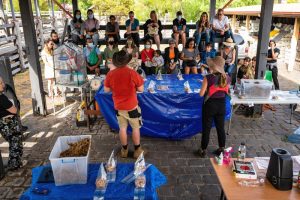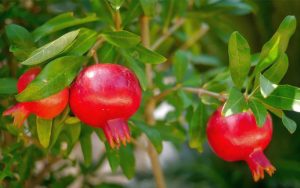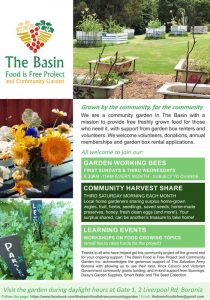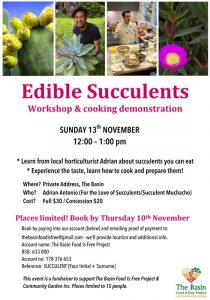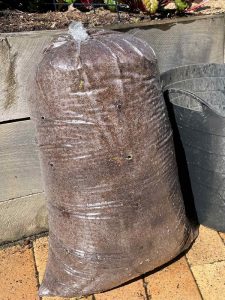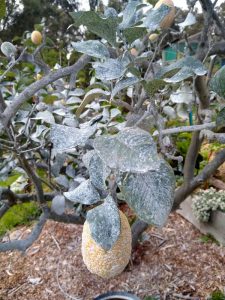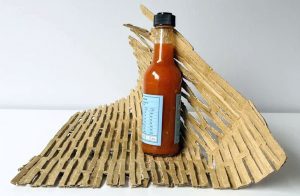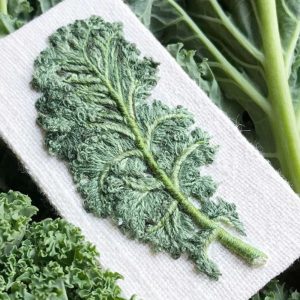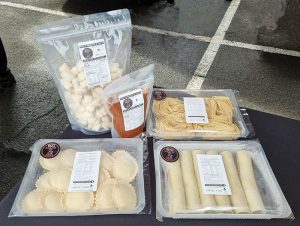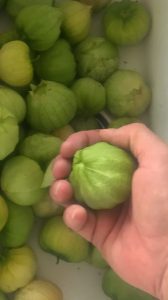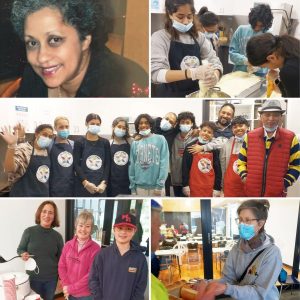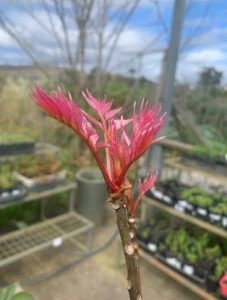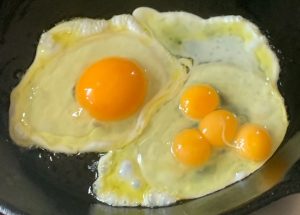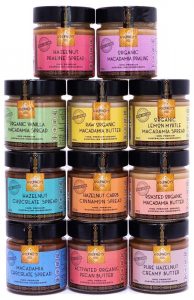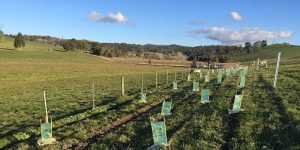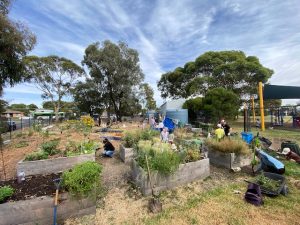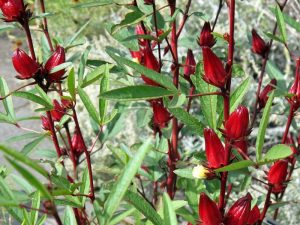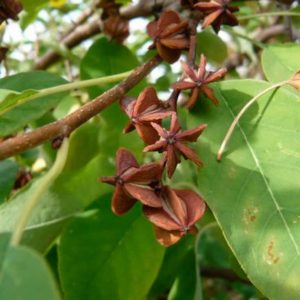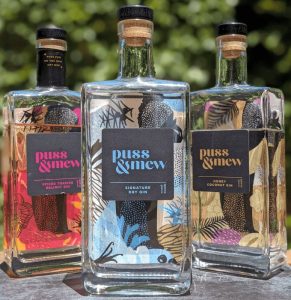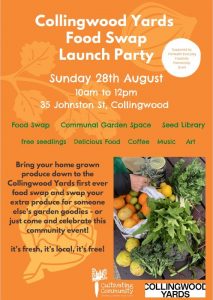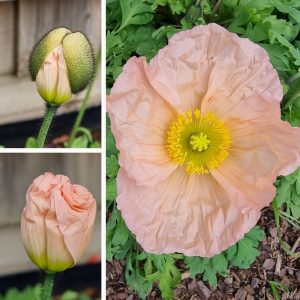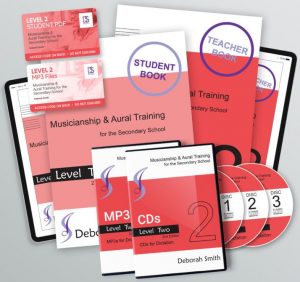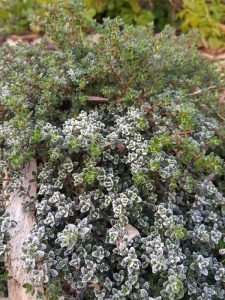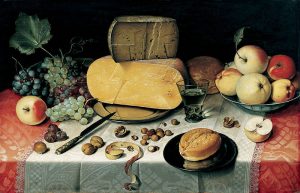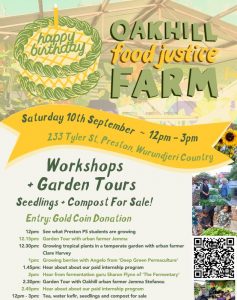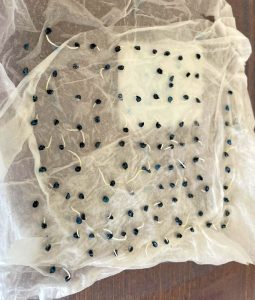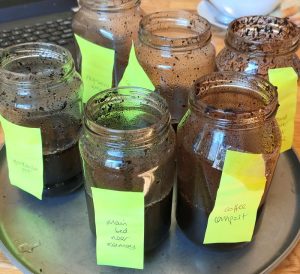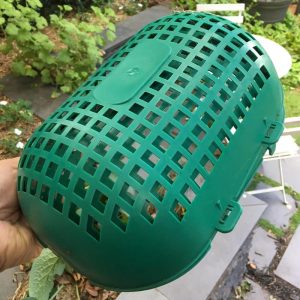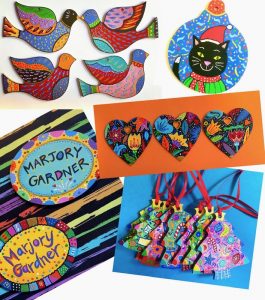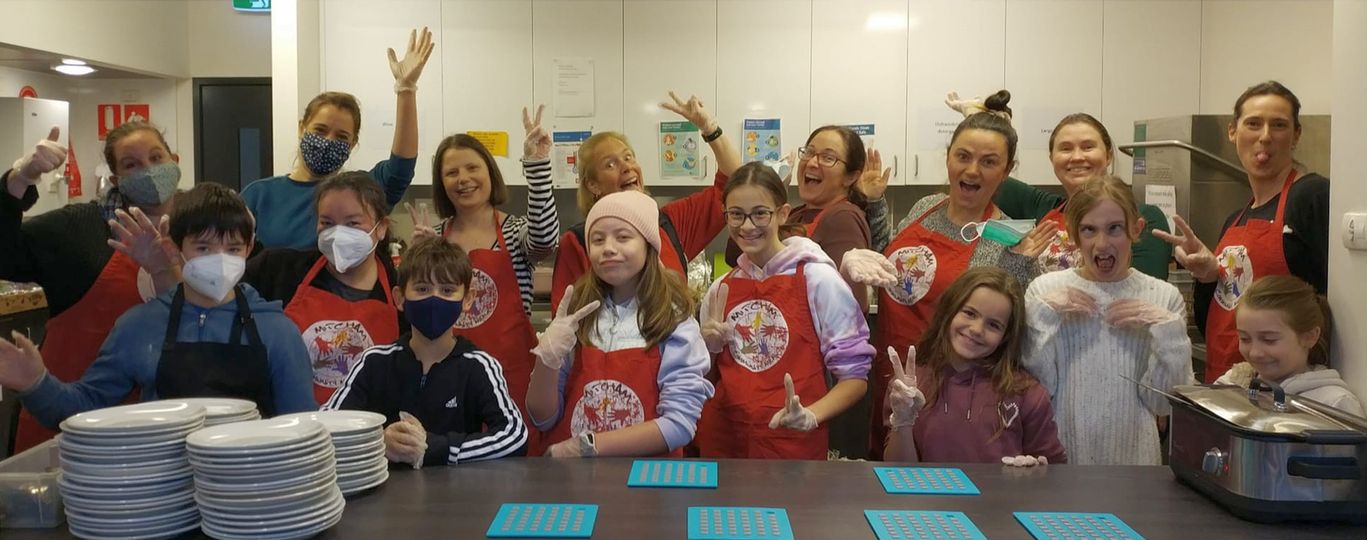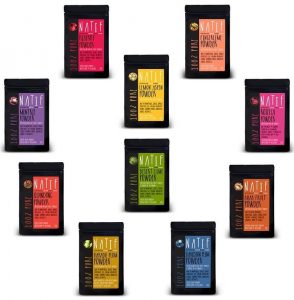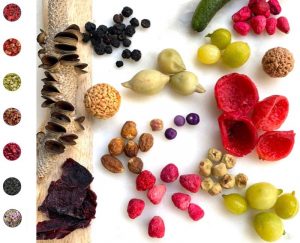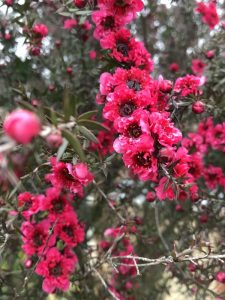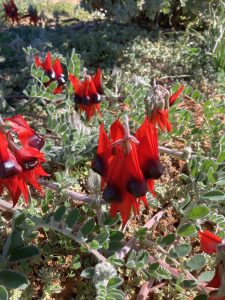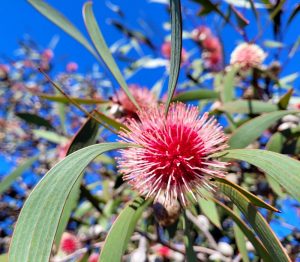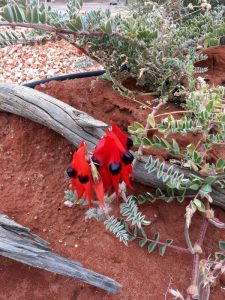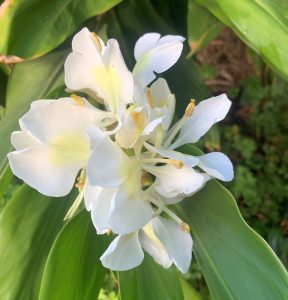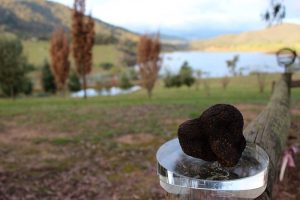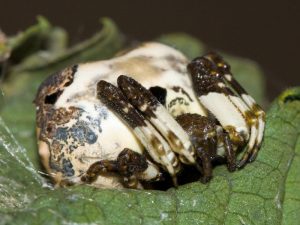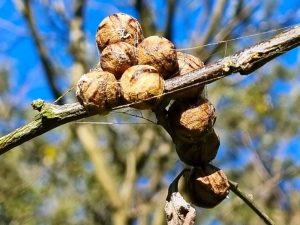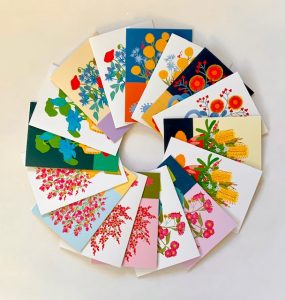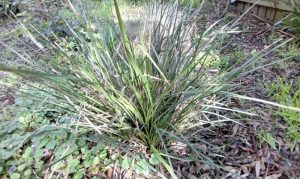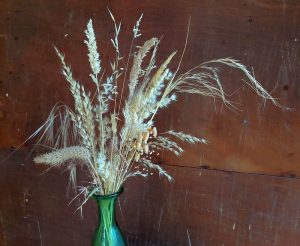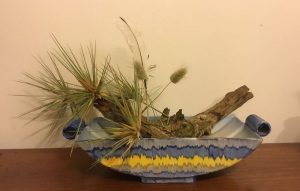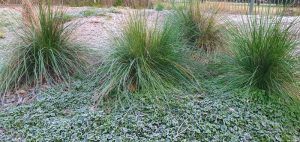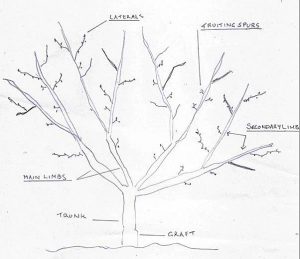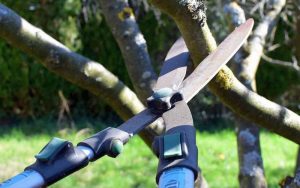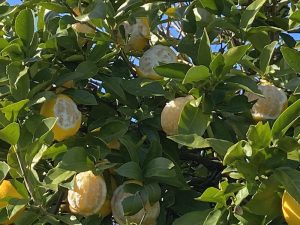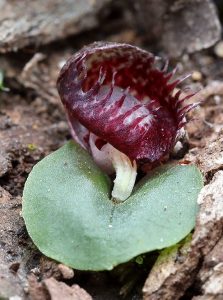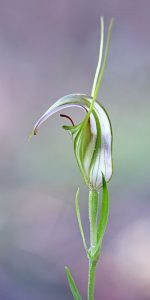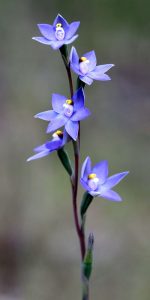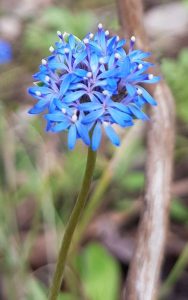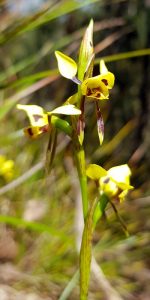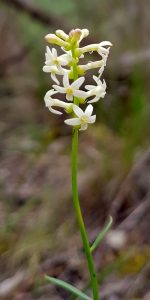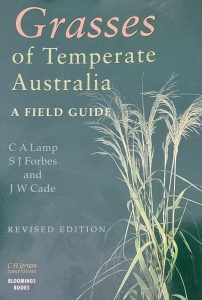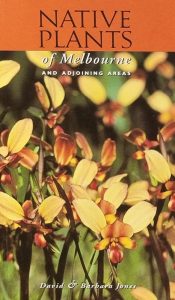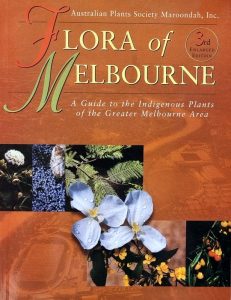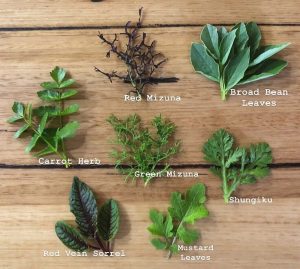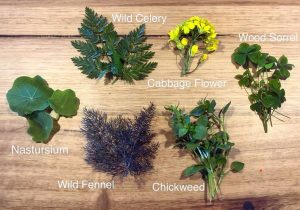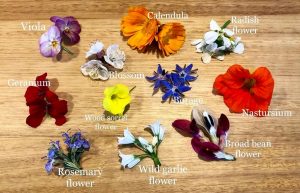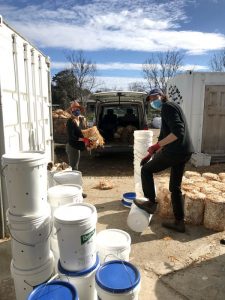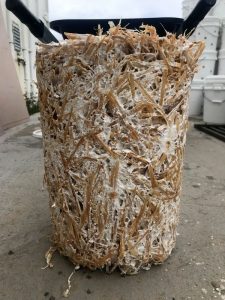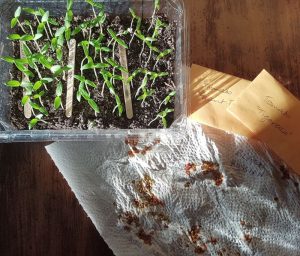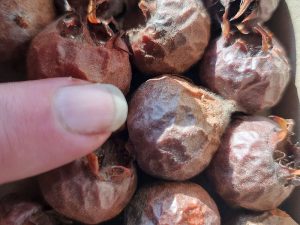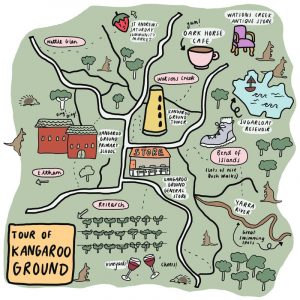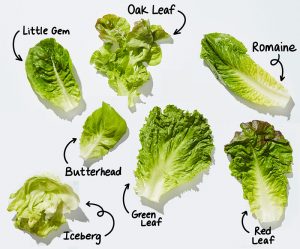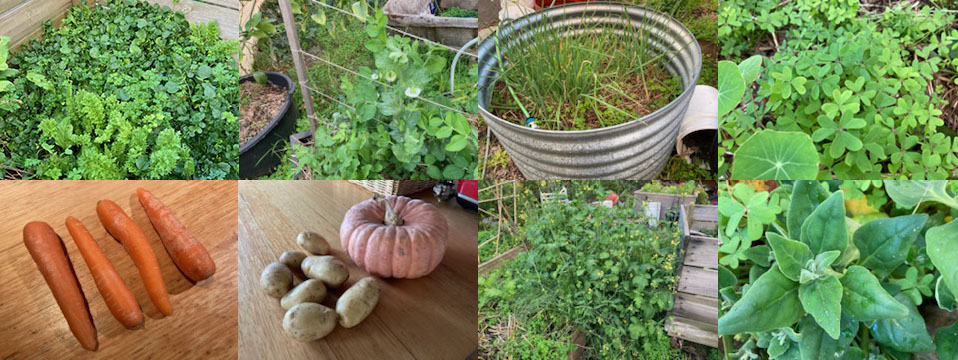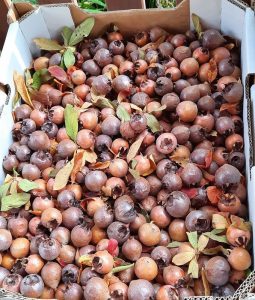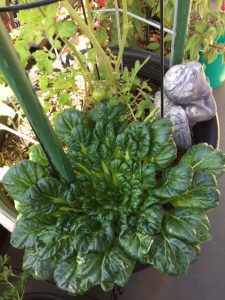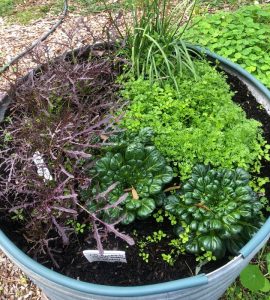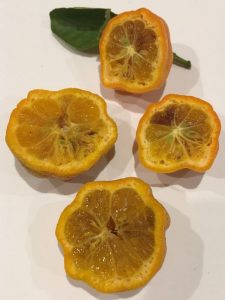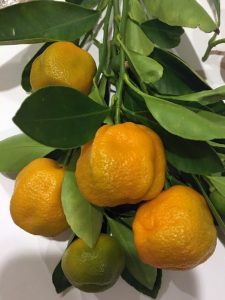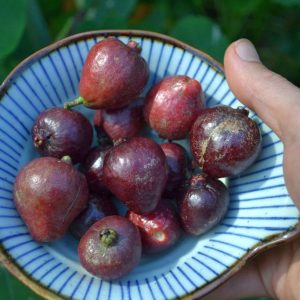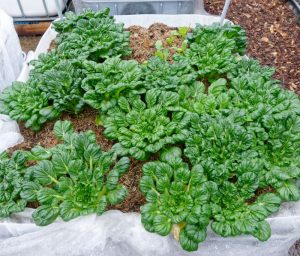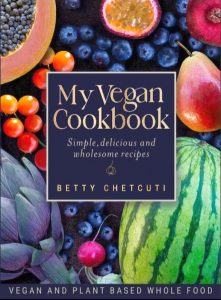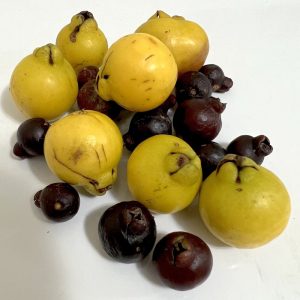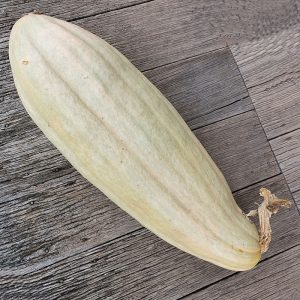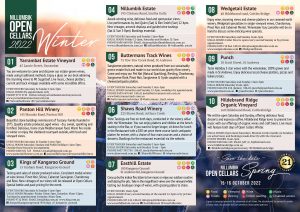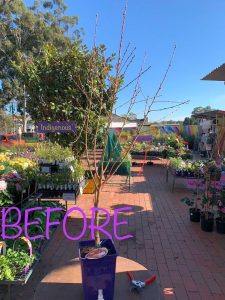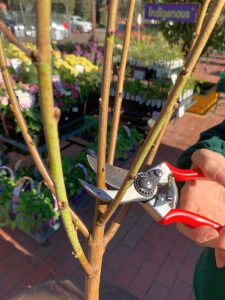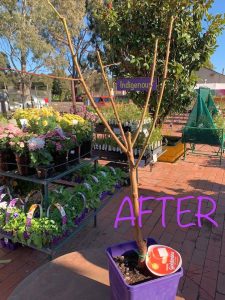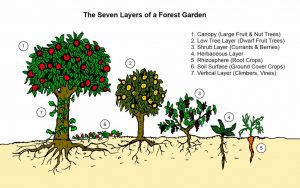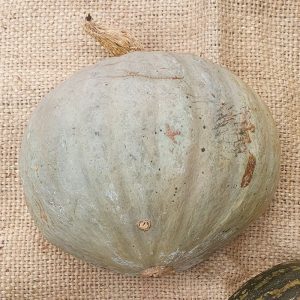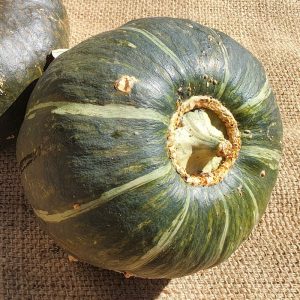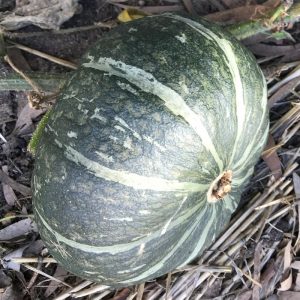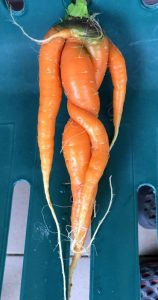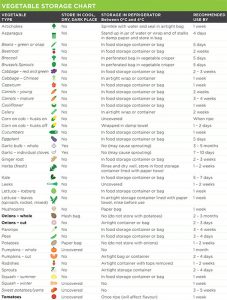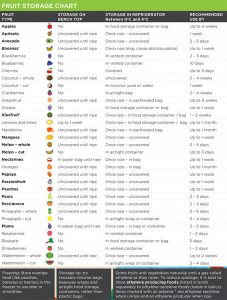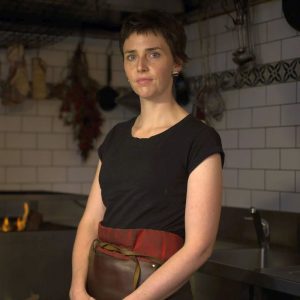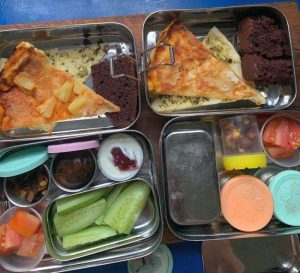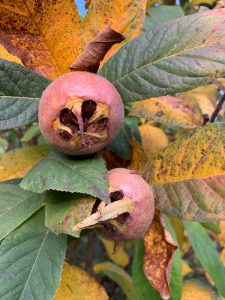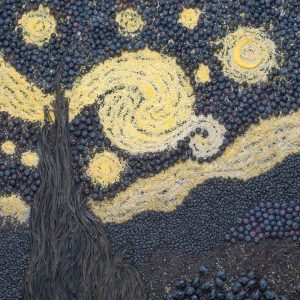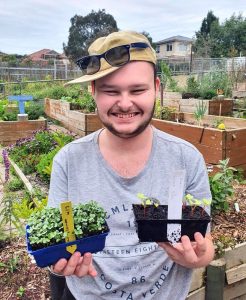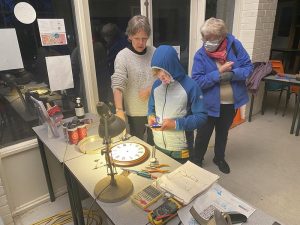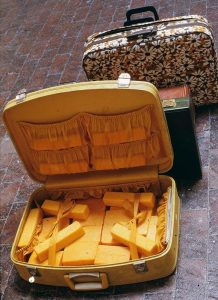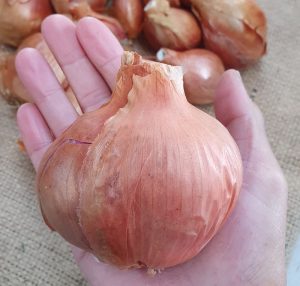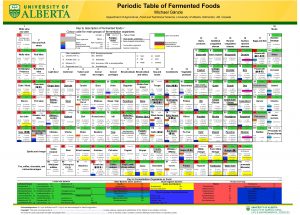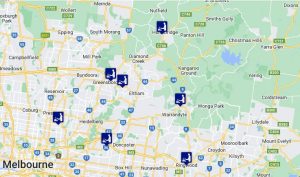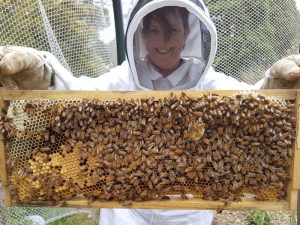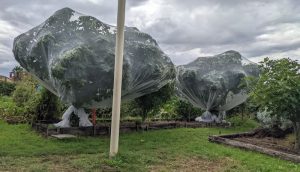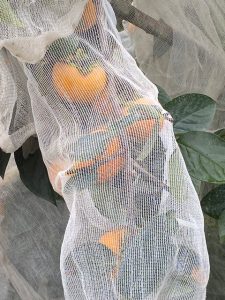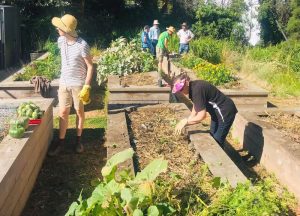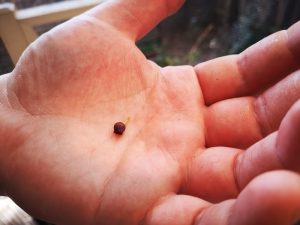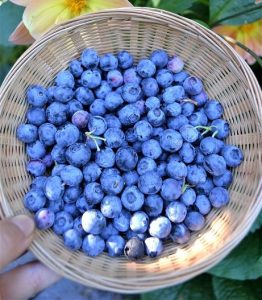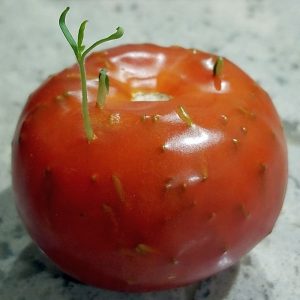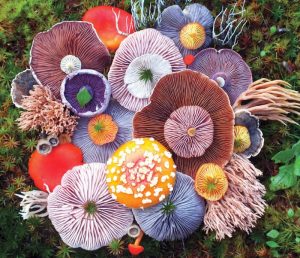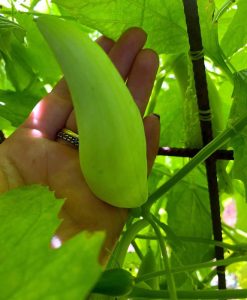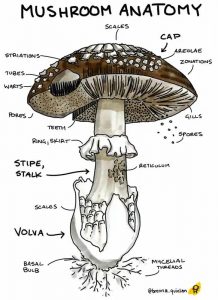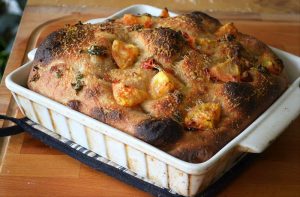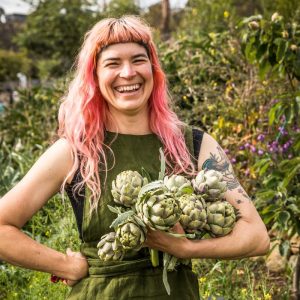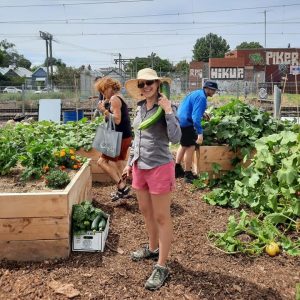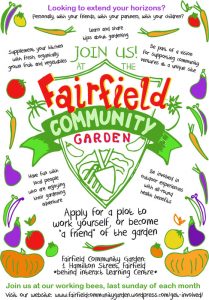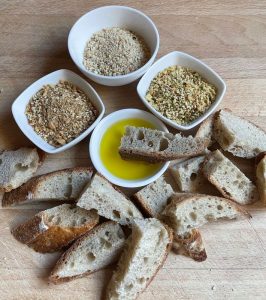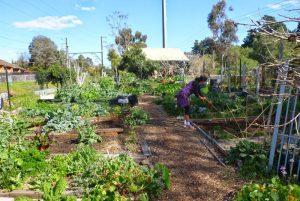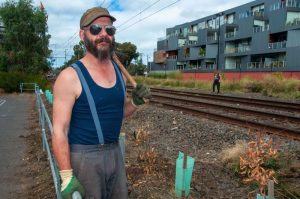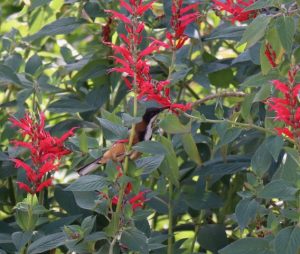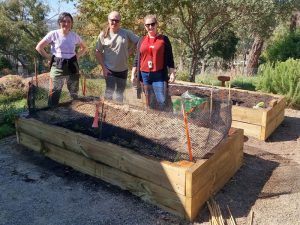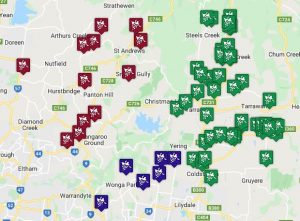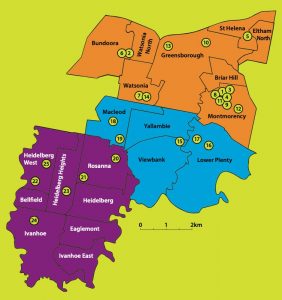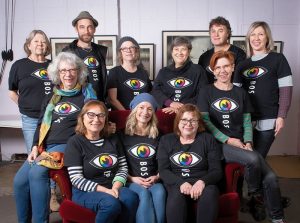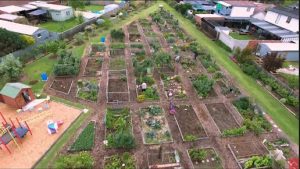Thanks to the people who have contributed to this week’s newsletter: Anna Matilda, Chris Chapple, Karen Throssell and Sarah Willits.
Baker’s yeast versus sourdough starter
Baker’s yeast is a particular species of yeast, Saccharomyces cerevisiae, which converts sugar into carbon dioxide and ethanol. The carbon dioxide gas causes the dough to rise, whilst the ethanol either evaporates or is left in the bread. The heat used whilst baking then kills off the yeast. It is the same species, but a different strain, as that used in alcoholic fermentation. It is a manufactured product, grown in vats. It has only been around for the last 150-250 years.
Baker’s yeast is available in a number of different forms, the main differences being the moisture content. The most common form for non-commercial bakers in Australia is ‘dry yeast’, where live yeast cells are encapsulated in a thick jacket of dry, dead cells with some growth medium. Before use, dry yeast is re-hydrated, such that the live yeast can escape its jacket. Note that nutritional yeast is ‘deactivated’ (i.e. dead) Saccharomyces cerevisiae, which is eaten for its taste or nutritional value.
A sourdough starter is a much more complicated substance than baker’s yeast. Whilst it will usually contain Saccharomyces cerevisiae, it will also contain a variety of other yeasts. It will also contain lactic acid bacteria, which convert carbohydrates into lactic and other acids plus other substances (it is these acids that give sourdough its sour/tangy taste). And the yeast and bacteria will be in a mixture of flour and water, on which they have been feeding.
A sourdough starter is created by simply mixing flour and water together and leaving it loosely covered but out in the open, after which various yeasts and lactic acid bacteria will, over time, enter from the air and start to feed and breed. Then, regularly remove around half of the starter and add new flour and water, so that the yeasts and bacteria have something new to eat.
Because baker’s yeast is a single substance, the results from using it are very predictable. It will rise bread faster than a sourdough starter. It is also easily available, easy to use and has a long shelf life.
Because a sourdough starter is a mix of substances which will differ somewhat from starter to starter, its results are less predictable. It also imparts a taste to the bread, which some/many people prefer, and results in a chewier texture. There is general agreement that sourdough starters, and more generally long-time fermentation processes, improve bread digestibility. They may also break down some of the gluten. However, a sourdough starter will rise the bread less quickly (and sometimes much less quickly) and requires time and effort to create and maintain.
Baker’s yeast and sourdough starter are interchangeable in most recipes, but non-trivially so. One rule of thumb is that 100g sourdough starter equates to around 3½g (1+ teaspoons) baker’s yeast plus 50g wet ingredients plus 50g dry ingredients.
Read more of my baking articles.
Want a job?
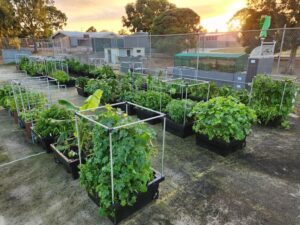 Bundoora Secondary College wants to employ a full-time Urban Agriculture and Environment Program Manager who will maintain the college’s farm, gardens, grounds and equipment. The expected experience/skills include: qualified or experienced gardener/horticulturist or relevant experience (e.g. farming background); experience with animals (e.g. goats, chickens); and backyard construction skills (e.g. fence building, animal enclosure building). Ideally, the applicant will have the flexibility and patience to work alongside teenagers, helping them to take part in school improvement projects. $70-75K pa.
Bundoora Secondary College wants to employ a full-time Urban Agriculture and Environment Program Manager who will maintain the college’s farm, gardens, grounds and equipment. The expected experience/skills include: qualified or experienced gardener/horticulturist or relevant experience (e.g. farming background); experience with animals (e.g. goats, chickens); and backyard construction skills (e.g. fence building, animal enclosure building). Ideally, the applicant will have the flexibility and patience to work alongside teenagers, helping them to take part in school improvement projects. $70-75K pa.
Closing date: 5pm, Friday, 26th April. Read more and potentially apply. You are strongly encouraged to contact Brian Daniells, Assistant Principal, beforehand by phone (9467 1511) or email. Note that the closing date is this coming Friday so you will need to act quickly if you want to apply.
An Alphington Commons?
2 Wingrove Street in Alphington is a 9 acre area of land owned by Darebin Council. A small portion of this land is currently leased to various small businesses, mostly food-related. Some of these businesses (including Farmwall, Melbourne Farmers Markets, Reground and Sporadical City Mushrooms) have recently got together to form a group which they are calling The Alphington Collective.
The Alphington Collective “believes that the site at 2 Wingrove Street, Alphington can be transformed into a space that serves the community and the environment – The Alphington Commons.” Their vision is that “it will combine food precincts, for-purpose business and social enterprises … being the first regenerative mixed-use village.“. Read more.
They have recently launched a petition, which reads “I am calling on Darebin Council to work in active partnership with The Alphington Collective to develop and action a plan for the future use of the land at 2 Wingrove Street, Alphington (‘The Alphington Commons’).” Sign the petition.
The Greensborough pickle parties
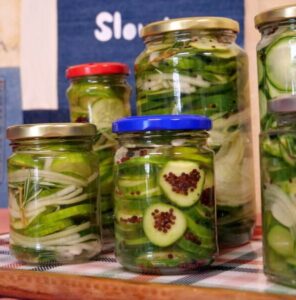 As discussed last week, Greenhills Neighbourhood House in Greensborough have made their free ‘pickle party’ events a weekly Friday event during term times, 9-11am. Their first such party was last Friday and Sarah Willits has reported in: “It really was a fun event – with everyone cutting up, contributing ideas and developing their own jars of pickles. Any excess is used for food relief so nothing goes to waste.”
As discussed last week, Greenhills Neighbourhood House in Greensborough have made their free ‘pickle party’ events a weekly Friday event during term times, 9-11am. Their first such party was last Friday and Sarah Willits has reported in: “It really was a fun event – with everyone cutting up, contributing ideas and developing their own jars of pickles. Any excess is used for food relief so nothing goes to waste.”
Another article from Angelo Eliades
Spice up your rodent defense with potent chili capsaicin-based repellent sprays.
Read more of Angelo’s food-related articles.
Another video from Simone Boyd
Immature pumpkins – yes you can eat them.
Simone has two suggestions. The first is to feed them to your highland cows (only potentially applicable to a few people!). The second is to cook them like you would zucchinis (which are a variety of pumpkin which is always eaten when immature).
Achieving blisspoint (a poem by Karen Throssell)
[The poem below comes from a recently published a collection of poems entitled Appetite – the politics of food. You can buy the book online for $25 from Karen’s website.]
Why do we eat what we know is unhealthy?
Processed food devoid of all nutrients
It alters our brain, so we want more and more
Bypasses our natural feelings of hunger
Processed food doing positive harm
When did our produce become packaged product?
Eating makes money – don’t wait for hunger
Chemical agents affect our metabolism
When did our produce become packaged product?
Companies work on creating addiction
Chemical agents affect our metabolism
Our brains are hard wired to respond to rewarding
Taste testers work on achieving ‘Blisspoint’
ultra-processed and ultra addictive
Our brains are hard wired to respond to rewarding
Food is also adjusted for ‘mouth-feel’
‘Mouth feel’ almost important as taste
It alters our brain, so we want more and more
Plus the perfect equation of salt sugar fat
Why do we eat what we know is unhealthy?
Read more food-related poetry by Karen and 11 other newsletter readers on our website.
 Every newsletter needs a good picture
Every newsletter needs a good picture
Cow banana.
The Melbourne ‘Local Food Connections’ community radio show
On next Sunday’s show (28th April), Ann Stanley will interview Georgia Savage from The Community Grocer. Listen on 3CR (855 AM), 10-10.30am, by tuning into either the station (855 AM) or its livestream.
Podcasts of all previous episodes are available on their website, the latest being Shani Shafrir on therapeutic horticulture (14th April).
Which link was clicked most times in the last newsletter?
The most popular link in the last newsletter was Angelo’s beetroot growing guide.
The most popular event link in the last newsletter was the upcoming Open Cellars of Nillumbik on the weekend of 15th and 16th June.
 Joke (or pun) of the week
Joke (or pun) of the week
You go your whole life making a great spanakopita and then, BAM, one day you get 20 people asking for the recipe. Nobody expects the spinach inquisition.
Regular activities over the coming week
Farmers’ and other food markets
- Friday: Farm Raiser farmgate (Bellfield) and Community Grocer, Carlton.
- Saturday: Carlton, Coburg and Farm Raiser farmgate (Bellfield).
- Sunday: Alphington and Eltham.
- Tuesday: Community Grocer, Fitzroy and The Food Collective Market, Epping.
Food swaps
- Saturday: Blackburn North, Brunswick East, Heidelberg, Hurstbridge and Preston/Thornbury,
- Sunday: Eltham.
Community gardens
- Thursday: Buna (Heidelberg West), Diamond Valley Library (Greensborough), Edible Hub (Hurstbridge), SEEDs (Brunswick) and Whittlesea.
- Friday: Panton Hill and West Brunswick.
- Saturday: Links (Lalor), Macleod and Thrive (Diamond Creek).
- Sunday: Creeds Farm (Epping), Fawkner Food Bowls, Merri Corner (Brunswick East), Pentridge (Coburg), Regent (Reservoir) (including a compost workshop which you need to register for) and West Brunswick.
- Monday: SEEDs (Brunswick) and Whittlesea.
- Tuesday: Watsonia.
- Next Wednesday: Eltham Neighbourhood House, Macleod, Newton Street (Reservoir), Span (Thornbury) and Sylvester Hive (Preston) .
Not local but interesting
Make the most of food with dehydrating; Sunday, 28th April, 11am-1pm; free; Sandringham.
Anna Matilda, aka The Urban Nanna, will take you through some of the simplest and most effective ways to ferment different types of foods. Learn about the science behind fermenting food and have a go at making your own fresh ferment to take home.
Intro to fermentation; Sunday, 23rd June, 11am-1pm; free; Sandringham.
Anna Matilda, aka The Urban Nanna, will take you through some of the simplest and most effective ways to dehydrate different types of foods. Learn the ins and outs of dehydrating and have a go at making a dehydrated blend to take home.
Upcoming face-to-face events – not cooking
Community cupping; Saturday, 27th April, 9.30-11am; $18 ($12 per hour); Fitzroy North.
Join Market Lane Coffee and The Fermentary for a coffee tasting session. Cupping is a system of tasting and evaluating coffee that is used by roasters to decide which lots they are going to purchase. When coffees are experienced comparatively, their different flavour profiles emerge and you will begin to understand a coffee’s sweetness, acidity or body.
Community garden talk; Tuesday, 30th April, 2-3pm; free; Ringwood.
Kat, from the Central Ringwood Community Centre, will talks about the benefits of a community garden and how the different activities that take place there can engage and inspire you.
Roasted chestnuts and mulled wine at Sylvester Hive; Sunday, 5th May, 2-4pm; free; Preston.
Go along for a social afternoon with locals and enjoy roasted chestnuts, mulled wine and toasted marshmallows. Take something sweet or savoury to share. Everyone welcome.
A taste of permaculture; Wednesday, 8th May, 10-11am; free; Croydon.
Jane Coleman, from Earth and Soul Permaculture, will explain permaculture including what zones are plus the concepts and resources that you need to start your permaculture experience.
In-depth mushroom cultivation workshop; Sunday, 19th May, 10am-4pm; $161 ($27 per hour); Alphington.
You will learn the growing methods for oyster mushrooms, including inoculation & sterilisation, and be introduced to basic mycology. You will undertake practical sessions and learn how to start master cultures. You will also be given a tour of the mushroom farm. Take a clean 5-10L bucket with a lid and some gloves. Presenter: Button. Organised by The Mushroomery.
Eat the weeds talk and mini market; Sunday, 1st June, 10.30am-12.30pm; free; Montrose.
Pat will discuss edible weeds and how to use them. Following the talk, the Montrose Community Cupboard will have a mini market. Those attending the talk will enter the market first.
Edible weeds walk; Sunday, 8th June, 11am-1pm; $30 ($15 per hour); Merri Creek Trail.
What if many of the weeds in our garden were just as edible as the vegetables we tend beside them? What if some of these free, all-too-easy-to-grow uninvited guests were so nutritionally dense that they are just about the healthiest things you could possibly eat? What if many of them also had medical traditions dating back centuries? Well it’s all true! And if you know what to choose, they also taste great. Join Adam Grubb, co-author of The Weed Forager’s Handbook, for a walk foraging for edible weeds.
Traditional wooden spoon carving; Sunday, 23rd June, 10am-4pm; $145 ($29 per hour); CERES.
Learn the traditional craft of carving your own kitchen utensils using specialised carving knives and your hands. From a piece of sustainably sourced native timber, carve spoons, butter spreaders, spatulas or spurtles from a piece of wood. You will learn: an age-old craft; the sense of meditation and slowness to be found in whittling life’s essential objects; sourcing sustainable materials; the basics of traditional tool use; and how to safely turn a log into your favourite wooden utensil. Presenter: Alma Arriaga.
The fungus amongst us; Sunday, 23rd June, 11.30am-2pm; $80 ($32 per hour); Alphington.
Explore the Darebin park lands through a fungal lens. Participants will be guided to see and get close to the local world of fungi. The park adventure will be led by local ecologist Dr Sapphire McMullan-Fisher. Julia Laidlaw, from Sporadical City Mushrooms, will then share the world of zero waste mushroom farming at her farm on the edge of the park land.
In April
- Community cupping; Saturday, 27th April, 9.30-11am; $18 ($12 per hour); Fitzroy North.
- Traditional wooden spoon carving; Saturday, 27th April, 10am-4pm; $145 ($29 per hour); CERES.
- Edible weeds walk; Saturday, 27th April, 10.30am-12.30pm; $30 ($15 per hour); Coburg.
- Foraging workshop; Saturday, 27th April, 1-3pm; $15; Ringwood.
- Edible weeds walk; Saturday, 27th April, 1.30-3.30pm; $30 ($15 per hour); Coburg.
- Home composting for beginners; Saturday, 27th April, 2-3.30pm; free; Edendale.
- Hot compost; Sunday, 28th April, 2-3pm; free; Reservoir.
- Basin backyard beekeeping; Monday, 29th April, 10-11am; free; Ringwood.
- Community garden talk; Tuesday, 30th April, 2-3pm; free; Ringwood.
In May
- Essential crop rotation and succession planting (part 1); Wednesday, 1st May, 7-9pm; free; Doncaster.
- Introduction to horticulture and permaculture (15 sessions); starting Thursday, 2nd May, 10am-3pm; $1,050 ($14 per hour); CERES.
- Bushfoods and indigenous plants; Thursday, 2nd May, 2-3pm; free; Northcote.
- Compost … nature’s climate champion! (family event); Saturday, 4th May, 10-11.30am; free; Ringwood.
- Farm Raiser community day and morning tea; Saturday, 4th May, 10am-2pm; free; Bellfield.
- Urban wine walk; Saturday, 4th May, midday-4pm; $82; Brunswick.
- Basic grafting; Sunday, 5th May, 10am-midday; free; Bundoora.
- Plants and permaculture; Sunday, 5th May, 10am-3pm; $145 ($29 per hour); CERES.
- Kalorama Chestnut Festival; Sunday, 5th May, 10am-4pm; free; Kalorama.
- Mushrooms growing; Sunday, 5th May, 10am-4pm; $195 ($33 per hour); CERES.
- Roasted chestnuts and mulled wine at Sylvester Hive; Sunday, 5th May, 2-4pm; free; Preston.
- A taste of permaculture; Wednesday, 8th May, 10-11am; free; Croydon.
- Mushroom foraging; Wednesday, 8th May, 6.30-8.30pm; $85 ($43 per hour); Collingwood.
- Back to basics composting; Thursday, 9th May, 6.30-8pm; free; Epping.
- Complete urban farmer (14 sessions); weekly sessions starting Friday, 10th May, 9am-3pm; $1,150 ($14 per hour); CERES.
- Winter gardening workshop; Saturday, 11th May, 11am-midday; free; Watsonia.
- Introduction to food photography; Sunday, 12th May, 1.30-4.30pm; $119 ($40 per hour); Warrandyte.
- Tea around the world; Thursday, 16th May, 7-9pm; free; Preston.
- Seed saving 101; Saturday, 18th May, 10-11.30am; free; Bundoora.
- Beginners backyard beekeeping; Sunday, 19th May, 10am-3pm; $220 ($44 per hour); CERES.
- In-depth mushroom cultivation workshop; Sunday, 19th May, 10am-4pm; $161 ($27 per hour); Alphington.
- Coloured pencil persimmon workshop; Saturday, 25th May, 10am-4pm; $120 ($20 per hour); Park Orchards.
- Setting up a worm farm; Saturday, 25th May, 2-3.30pm; free; Edendale.
- Traditional wooden spoon carving; Sunday, 26th May, 10am-4pm; $145 ($29 per hour); CERES.
- Keeping backyard chickens with Felicity Gordon; Sunday, 26th May, 11am-midday; $15; Watsonia.
In June
- Eat the weeds talk and mini market; Sunday, 1st June, 10.30am-12.30pm; free; Montrose.
- Backyard beekeeping basics; Sunday, 2nd June, 11am-1pm; $80 ($40 per hour); CERES.
- Essential garden infrastructure for a thriving garden; Wednesday, 5th June, 7-9pm; free; Doncaster.
- Permaculture Design Course (12 sessions); 10 Thursday sessions, starting 6th June, 9am-4pm, plus 2 Saturday sessions; $595 ($7 per hour); Bayswater North.
- Edible weeds; Saturday, 8th June, 10am-midday; $70 ($35 per hour); CERES.
- Edible weeds walk; Sunday, 8th June, 11am-1pm; $30 ($15 per hour); Merri Creek Trail.
- Open Cellars of Nillumbik; Saturday, 15th June, 11am-5pm; free; Nillumbik.
- Design your own garden; Saturday, 15th June, 10am-3pm; $145 ($29 per hour); CERES.
- Open Cellars of Nillumbik; Sunday, 16th June, 11am-5pm; free; Nillumbik.
Regular events
- Beekeeping workshop; roughly once a month on Saturdays, 1-4pm; $95 ($32 per hour); Brunswick East.
- Brewery tours; every Wednesday, Thursday and Friday, 3-4.30pm; $38 ($26 per hour); Abbotsford.
- Carlton aperitvio food tour; every Friday, 5-7pm; $139 ($70 per hour); Carlton.
- Cocktail making classes; various dates, times and costs; Richmond.
- Cultivating Community gardening workshops; 3rd Saturday of the month, 2.30-3.30pm; free; Carlton.
- Distillery tour and tasting; most Saturdays, 10.30am-2.30pm; around $30 ($8 per hour); Warrandyte South.
- Edible Forest tours; every Friday and Saturday, 11am-1pm and again at 1-3pm plus some other days of the week; $28 ($14 per hour); Dixons Creek.
- Eltham trails (walking food tour); various Saturday mornings and Thursday evenings; $65 ($22 per hour); Eltham.
- Flavours of Coburg food tour; 3rd Saturday of each month, 10am-1pm; $65 ($22 per hour); Coburg.
- Gin making masterclass; most Saturdays, 10am-1pm; $175 ($58 per hour); Nunawading.
- Gin masterclass; most Saturdays and Sundays, midday-1pm; $80 ($80 per hour); Eltham.
- Plant to harvest; 1st Saturday of the month, midday-1pm; $5; Macleod.
- Ratio Cocoa Roasters behind the scenes chocolate factory tour; various Fridays and Saturdays; $20 ($14 per hour); Brunswick.
- Spoon carving workshop; various Saturdays and Sundays, 10am-1pm; $130 ($43 per hour); Coburg North.
- Truffle workshop at Ratio Cocoa Roasters; 3rd Sunday of each month, 11am-1pm; $75 ($38 per hour); Brunswick.
- Wine tasting; 2nd Thursday of the month, 6-7.30pm; $33 ($22 per hour); Fitzroy.
- Wine tasting; various Saturdays and Sundays; $130 ($65 per hour); Fitzroy.
- Wine tasting; various days, times and prices; Northcote.
Upcoming face-to-face events – cooking
Food preserving and using leftovers; Saturday, 4th May, 2.30-5pm; free; Richmond.
Learn the basic techniques for bottling olives, drying herbs/fruits, jams and pickles, as well as ways to store food and use leftovers to minimise food waste. Presenter: Maria Ciavarella. Organised by My Smart Garden.
Charcuterie board masterclass (grazing board); Sunday, 26th May, 10am-midday; $134 ($67 per hour); Richmond.
Kaitlyn, from Good Food Grazing, will teach you how to create the perfect charcuterie board with a variety of meats, cheeses and fruits. Enjoy a free mocktail and baked sweet treat. Take home a large grazing board of food.
Japanese cooking 101; on 3 consecutive Fridays, starting 7th June, 10.30am-midday; $85 ($19 per hour); Greensborough.
Week 1: dashi stock and miso soup. Week 2: gohan (steamed rice) and onigirazu (rice sandwich). Week 3: vegetarian side dishes. Organised by Greenhills Neighbourhood House.
Sourdough workshop; Saturday, 15th June, 10am-1pm; $55 ($18 per hour); Bayswater North.
You will learn: the equipment needed to produce a sourdough; what kind of flour to use; the principal steps of bread making; what bread dough looks and feels like at its various stages of preparation and development; the processes of sourdough fermentation, mixing, kneading, folding and baking; Baker’s percentage and hydration; shaping loaves into a proofing basket, scoring and ways how to bake sourdough bread using a home oven; maintaining a starter and starter care; and ways how to create and look after your own sourdough starter culture. Take home: a piece of dough ready to be baked at home; a fresh sourdough starter and dry back up sourdough starter; flour to feed your starter; and a bowl cover. What to take: a bowl, tea towel, apron and good mood. Organised by Arrabri Community House.
Cooking with induction; Saturday, 22nd June, 10-11am; free; Camberwell.
Open Table who will demonstrate how easy it is to cook nutritious, healthy, low emissions meals on an induction cooktop.
Sri Lankan cooking class; Saturday, 22nd June, 11am-1.30pm; $90 ($36 per hour); Surrey Hills.
Experience the tastes, smells and sounds of Sri Lankan cooking. You will learn how to make a chicken curry dish, dhal with spinach, brinjal moju (eggplant) and Sri Lankan special yellow rice. Afterwards, you will sit down and enjoy a Sri Lankan feast. Organised by Balwyn Community Centre.
Cooking with induction; Saturday, 22nd June, midday-1pm; free; Camberwell.
Open Table who will demonstrate how easy it is to cook nutritious, healthy, low emissions meals on an induction cooktop.
Fermenting at home; Sunday, 23rd June, 10am-1pm; $120 ($40 per hour); CERES.
You will learn the basics of making your own sauerkraut, fermented seasonal vegetables and kombucha plus how to use fermented products in day-to-day life. You will take home your own jars of vegetables to ferment at home plus a kombucha SCOBY (symbiotic culture of bacteria and yeast). Presenter: Lauren Mueller.
In April
- One pot wonders of the world – hainanese chicken; Friday, 26th April, 5-7pm; $95 ($48 per hour); Panton Hill.
- Greek cooking; Saturday, 27th April, 10am-2pm; $150 ($38 per hour); CERES.
- Fermenting at home; Sunday, 28th April, 10am-1pm; $120 ($40 per hour); CERES.
- Cooking with bean curd; Sunday, 28th April, 11am-1pm; $28 ($14 per hour); Forest Hill.
In May
- Bulleen Heights School cooking class (8 sessions); on 8 consecutive Wednesdays from 1st May, 11.15am-12.45pm; $192 ($16 per hour); Lower Templestowe.
- Yes chef! Cooking school for ages 8-13 (4 sessions); on Wednesdays, starting 1st May, 4-5.30pm; $192 ($32 per hour); Brunswick East.
- The cook program (10 sessions); on Thursdays, starting 2nd May, 9.30am-1.30pm; $50 ($1 per hour); Brunswick.
- Cooking for one (5 sessions); on 5 consecutive Thursdays, starting 2nd May, 11am-1pm; $50 ($5 per hour); Lilydale.
- Milk kefir magic; Thursday, 2nd May, 6.30-8.30pm; $145 ($73 per hour); Fitzroy North.
- The art of pickling – winter veggies; Saturday, 4th May, 10am-midday; free; Hawthorn.
- Filled pasta making class with Piera; Saturday, 4th May, 10am-1pm; $140 ($47 per hour); Thomastown.
- Growing and cooking with bushfoods; Saturday, 4th May, 10am-3pm; $150 ($30 per hour); CERES.
- Raw food treats cooking workshop; Saturday, 4th May, 1-4pm; $175 ($58 per hour); Camberwell.
- Macarons workshop; Saturday, 4th May, 2-4pm; $102 ($51 per hour); Lower Templestowe.
- Food preserving and using leftovers; Saturday, 4th May, 2.30-5pm; free; Richmond.
- Food for mind and gut; Sunday, 5th May, 10am-2.30pm; $150 ($33 per hour); CERES.
- Taiwanese fermentation and preserve techniques with Cristina Chang; Sunday, 5th May, 11am-2pm; $225 ($75 per hour); Fitzroy North.
- Sri Lankan cooking class; Monday, 6th May, 6-8.30pm; $90 ($36 per hour); Surrey Hills.
- Blokes in the kitchen (2 sessions); Fridays, 10th May and 14th June, each 9am-midday; $90 ($15 per hour); Surrey Hills.
- Pickling and curing olives; Saturday, 11th May, 10am-12.30pm; free; Wollert.
- FFS … ferment four staples; Saturday, 11th May, 10am-3pm; $425 ($85 per hour); Fitzroy North.
- Cheese making; Saturday, 11th May, 10am-1pm; $150 ($50 per hour); Kinglake.
- Kefir making; Sunday, 12th May, 11am-3pm; $91 ($23 per hour); Forest Hill.
- Kombucha, jun, mead and water kefir; Sunday, 12th May, 10am-midday; $180 ($90 per hour); Fitzroy North.
- Natural soda workshop; Wednesday, 15th May, 6.30-8pm; $110 ($73 per hour); Collingwood.
- Sourdough bread making; Saturday, 18th May, 10am-1pm; $55 ($18 per hour); Panton Hill.
- Sourdough for beginners; Saturday, 18th May, 10am-1pm; $60 ($20 per hour); Brunswick.
- Cooking with bean curd; Saturday, 18th May, 11am-1pm; $28 ($14 per hour); Forest Hill.
- For the love of coconut; Sunday, 19th May, 10.30am-2.30pm; $180 ($45 per hour); Panton Hill.
- Sourdough bread baking; Saturday, 25th May, 9am-5pm; $220 ($28 per hour); CERES.
- Mozzarella making class; Saturday, 25th May, 10am-midday; $150 ($75 per hour); Thomastown.
- Indian cooking; Saturday, 25th May, 10.30am-1pm; $65 ($26 per hour); Bayswater North.
- Zero waste cooking; Saturday, 25th May, 11am-midday; free; Forest Hill.
- Charcuterie board masterclass (grazing board); Sunday, 26th May, 10am-midday; $134 ($67 per hour); Richmond.
- Gluten-free kitchen skills; Sunday, 26th May, 10am-3pm; $150 ($30 per hour); CERES.
- Yes chef! Cooking school for ages 14-18 (4 sessions); on Mondays, starting 27th May, 4-5.30pm; $192 ($32 per hour); Brunswick East.
In June
- Fermenting; Saturday, 1st June, 10am-1pm; $150 ($50 per hour); Kinglake.
- Preserving the season’s harvest; Saturday, 1st June, 10am-3pm; $150 ($30 per hour); CERES.
- Vegan cooking European style; Sunday, 2nd June, 10am-3pm; $150 ($30 per hour); CERES.
- Japanese cooking 101; on 3 consecutive Fridays, starting 7th June, 10.30am-midday; $85 ($19 per hour); Greensborough.
- Sourdough workshop; Saturday, 15th June, 10am-1pm; $55 ($18 per hour); Bayswater North.
- Veggies in desserts; Saturday, 15th June, 10am-3pm; $150 ($30 per hour); CERES.
Regular classes
- Al dente cooking (Italian); most Saturdays, 9am-1pm; $155 ($39 per hour); Chirnside Park.
- BBQ classes; various days and times; $135-150 ($45-50 per hour); Brunswick.
- Bread making; various Sundays, 8am-2pm; $230 ($38 per hour); Abbotsford.
- Brunswick Kitchen (many different classes); various dates, times and prices but mostly 2½ hours long and $120; Brunswick.
- Cake decorating; various days, times and prices; Camberwell.
- Chocolate making and pastry classes for children; various days, times and costs; Yarra Glen.
- Chocolate making workshop; various Thursdays, Fridays and Saturdays; $152 ($38 per hour); Blackburn.
- Cook to connect; various Tuesdays, 11am-1pm; free; Carlton.
- Cooking on a budget; Mondays in May, 10am-2pm; free; Richmond.
- Cozymeal (many different classes); various dates, times and prices; Carlton.
- Kombucha brewing workshop; last Thursday of each month, 7-11pm; $49 ($12 per hour); Brunswick.
- Let’s get cooking; Mondays, midday-2pm; $10 ($5 per hour); Epping.
- Margot & Montanez (Latin desserts); various dates, times and prices; Camberwell.
- Nonna & Mum’s cooking class; 4th Thursday of each month, 7.30-10pm; $20 ($8 per hour); Thornbury.
- No waste cook club 18-25 years; Fridays, midday-2pm; $28 ($14 per hour); Coburg.
- Otao Kitchen (many different classes); various dates, times and prices but mostly 3 hours long and $197; Abbotsford.
- Pickle party; Fridays during school terms, 9-11am; free; Greensborough.
- Pietro Gallus (Italian); most Sundays, 9am-12.45pm; around $160 ($43 per hour); Warrandyte South.
- Rosa’s cooking classes (Italian); various Saturdays and Sundays, 10.15am-3pm; mostly $165 ($35 per hour); Bundoora.
- Sausage making; various Thursdays, 6-9pm; $192 ($64 per hour); Fairfield.
- Small axe (Italian); various dates, times and prices; Brunswick.
- Sourdough basics; various days, 6.30-8.30pm; $120 ($60 per hour); Collingwood.
- Sourdough bread workshop; roughly once a month on Saturdays, 9-11.30am; $185 ($74 per hour); Brunswick East.
- Spanish cooking; various dates and times; $140 ($70 per hour); Carlton.
- Taiwanese cooking; various dates, times and prices; Brunswick.
- Tea blending; various Sundays; $75 ($60 per hour); Brunswick.
- Truffle and praline workshop; various Wednesdays, 6-10pm; $183 ($46 per hour); Blackburn.
- The ultimate biscuit class; various Tuesdays, 10am-3pm; $162 ($32 per hour); Blackburn.

